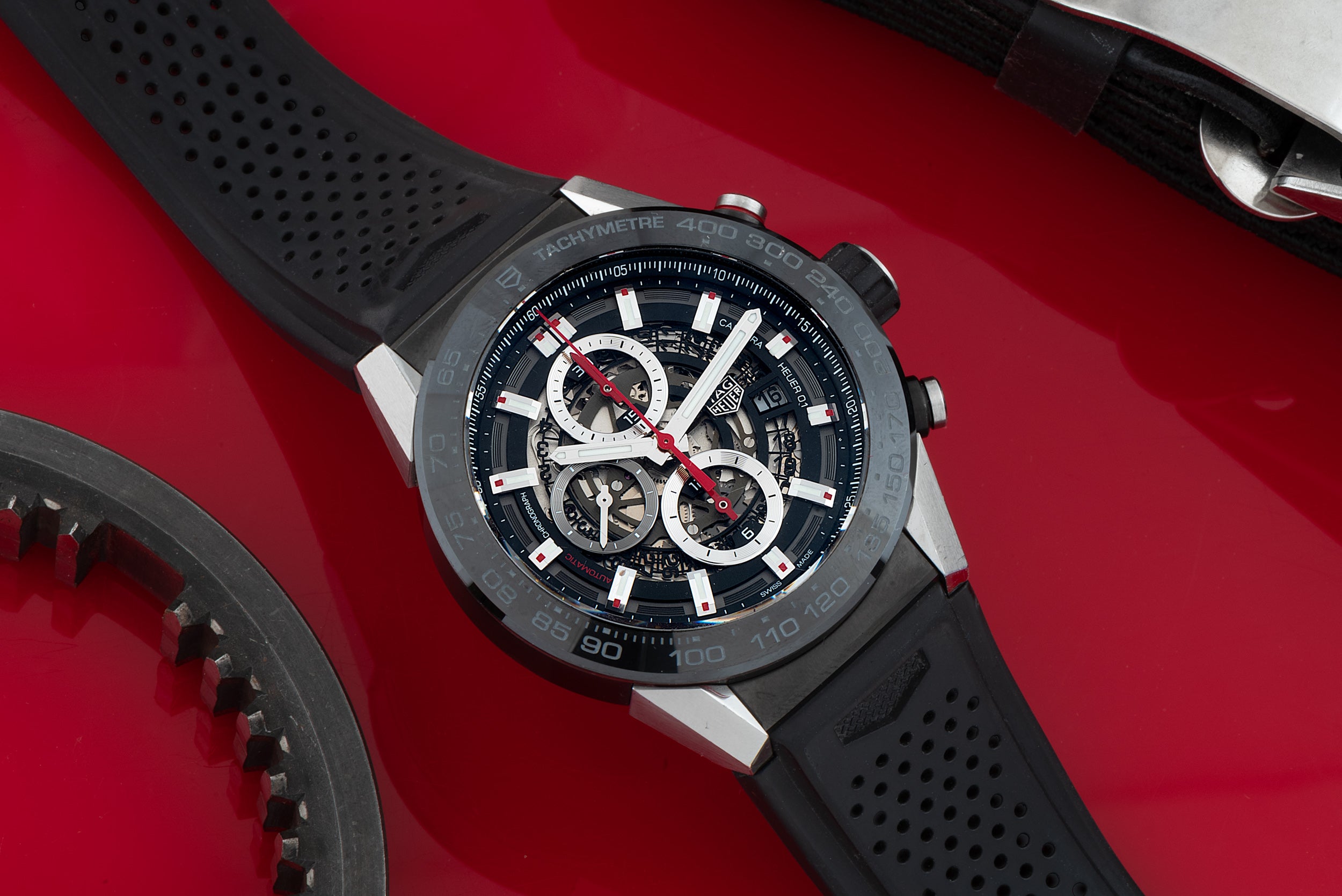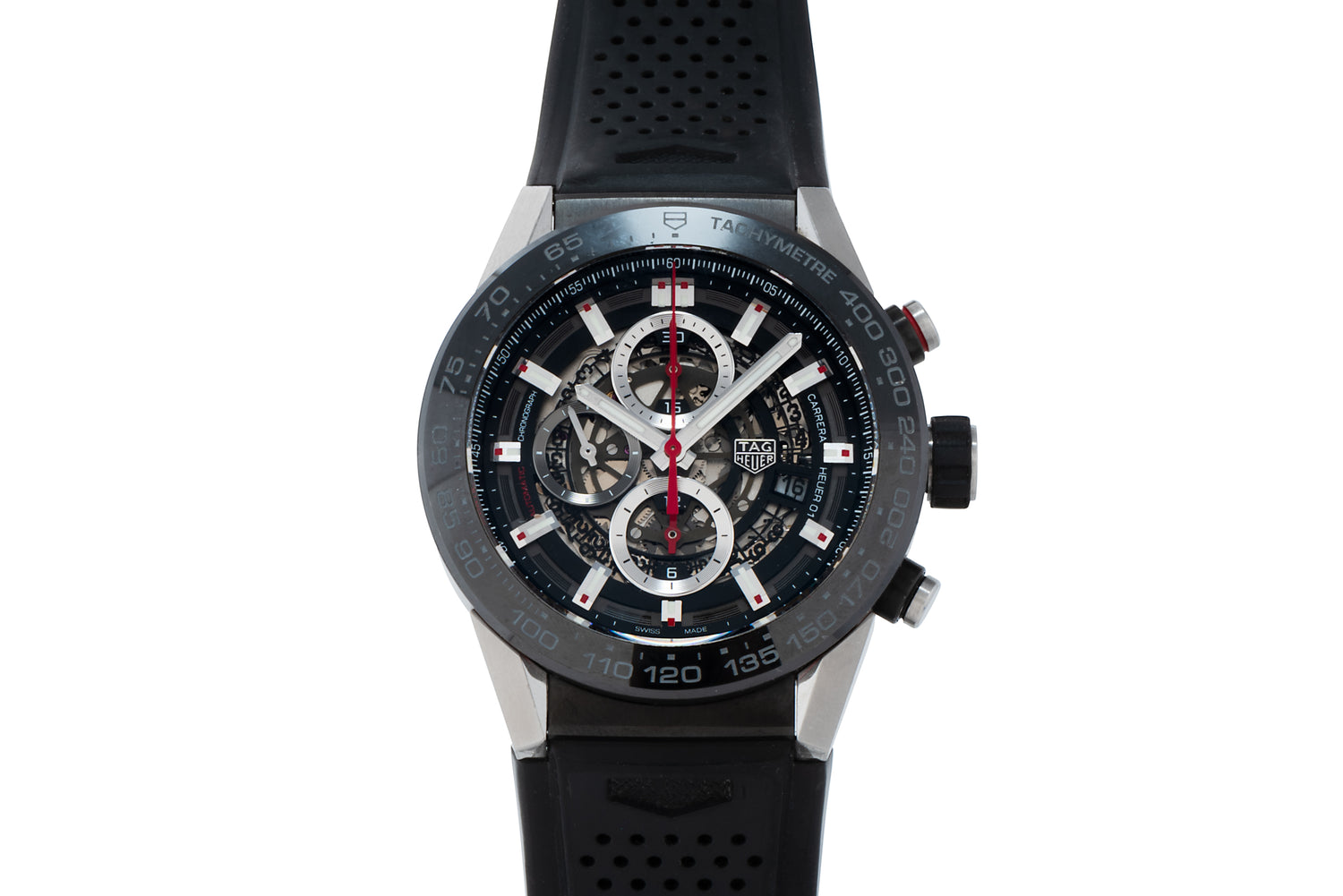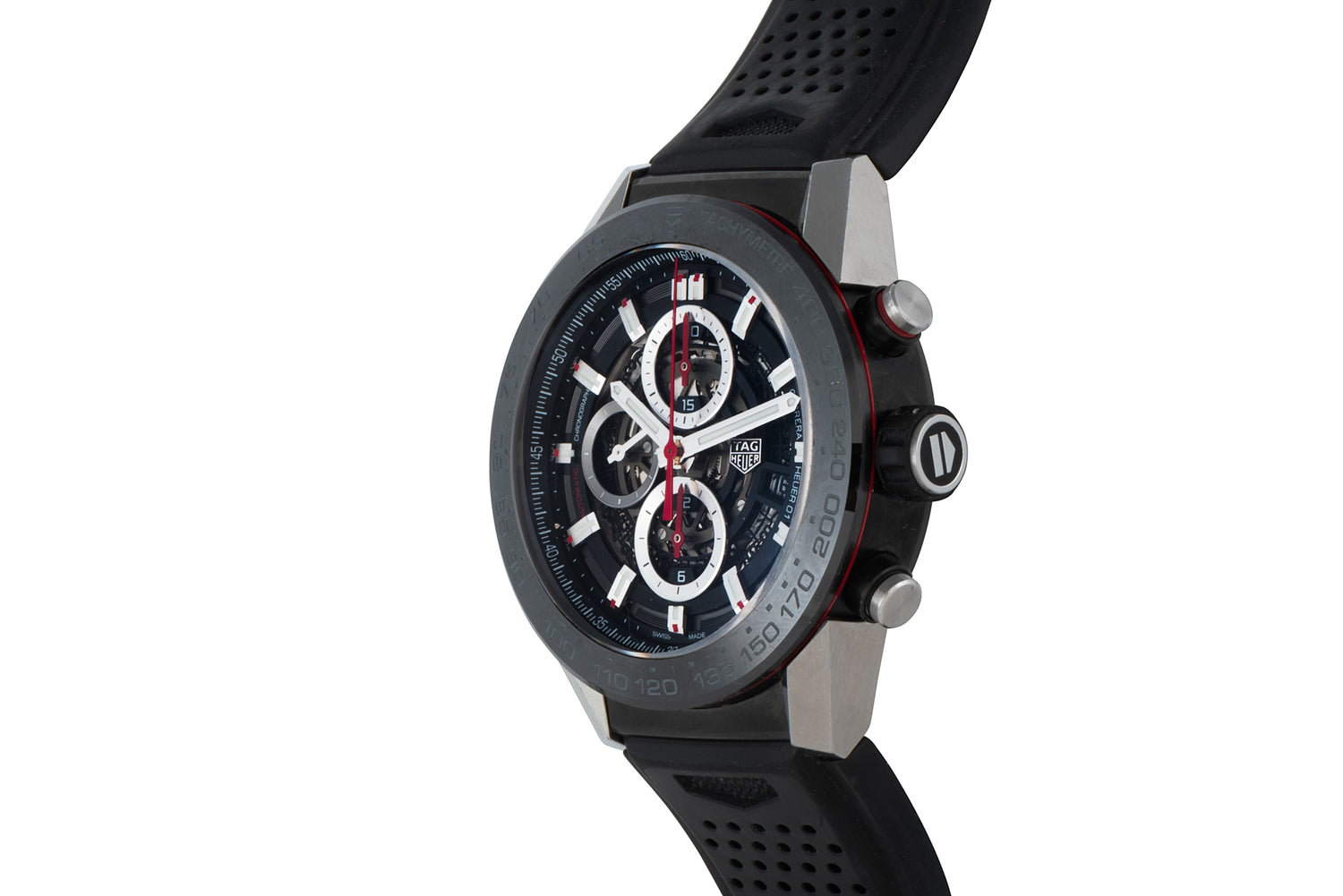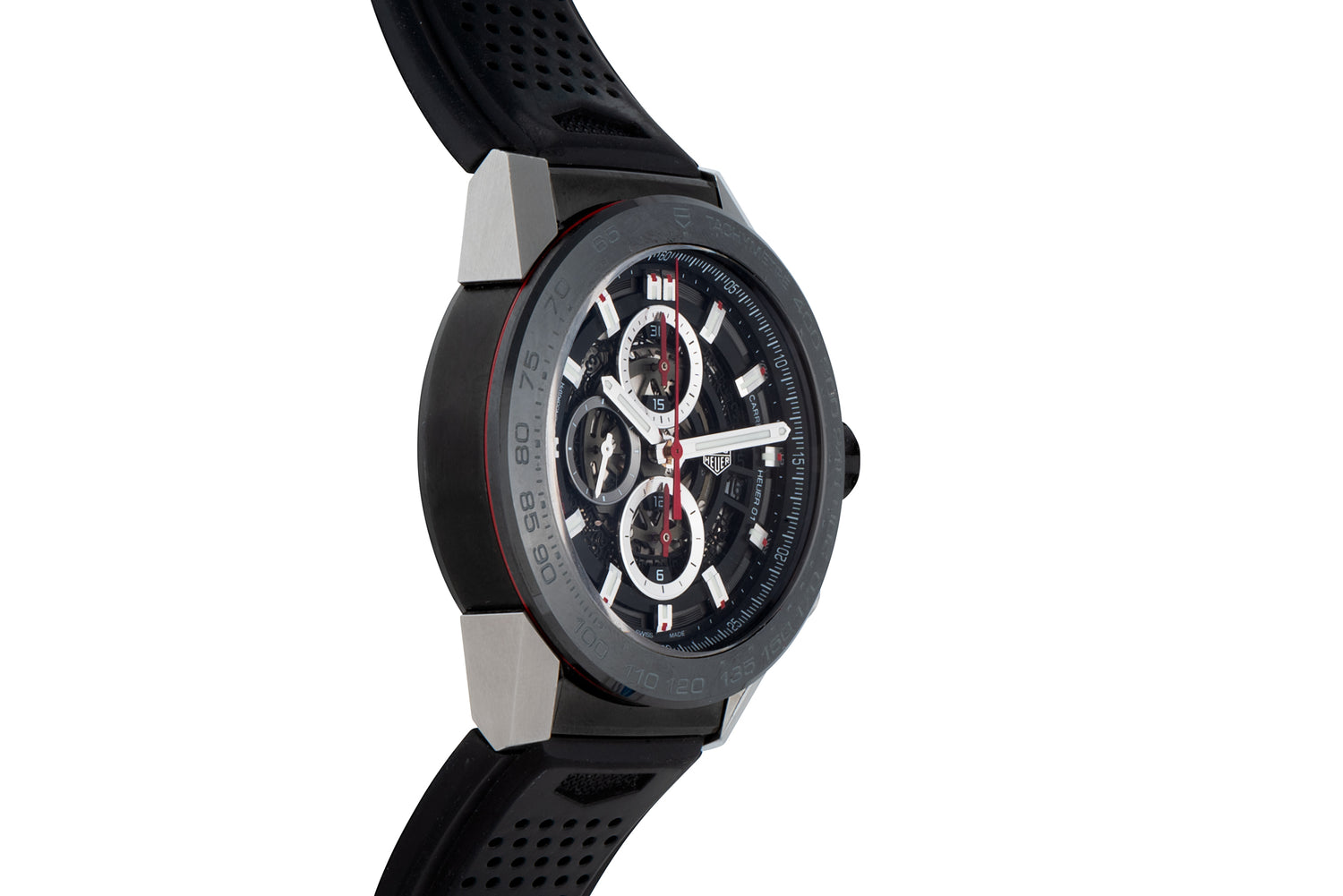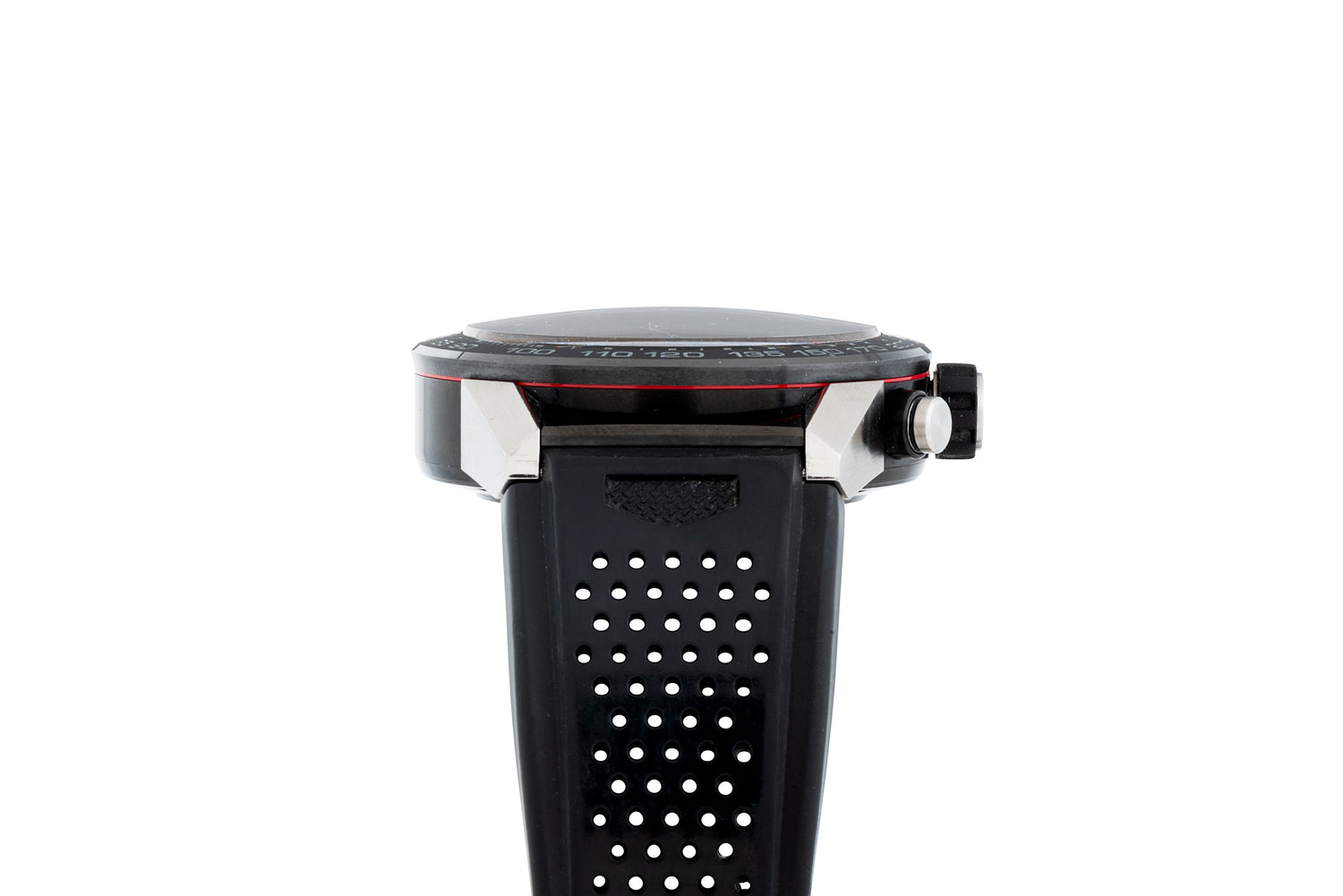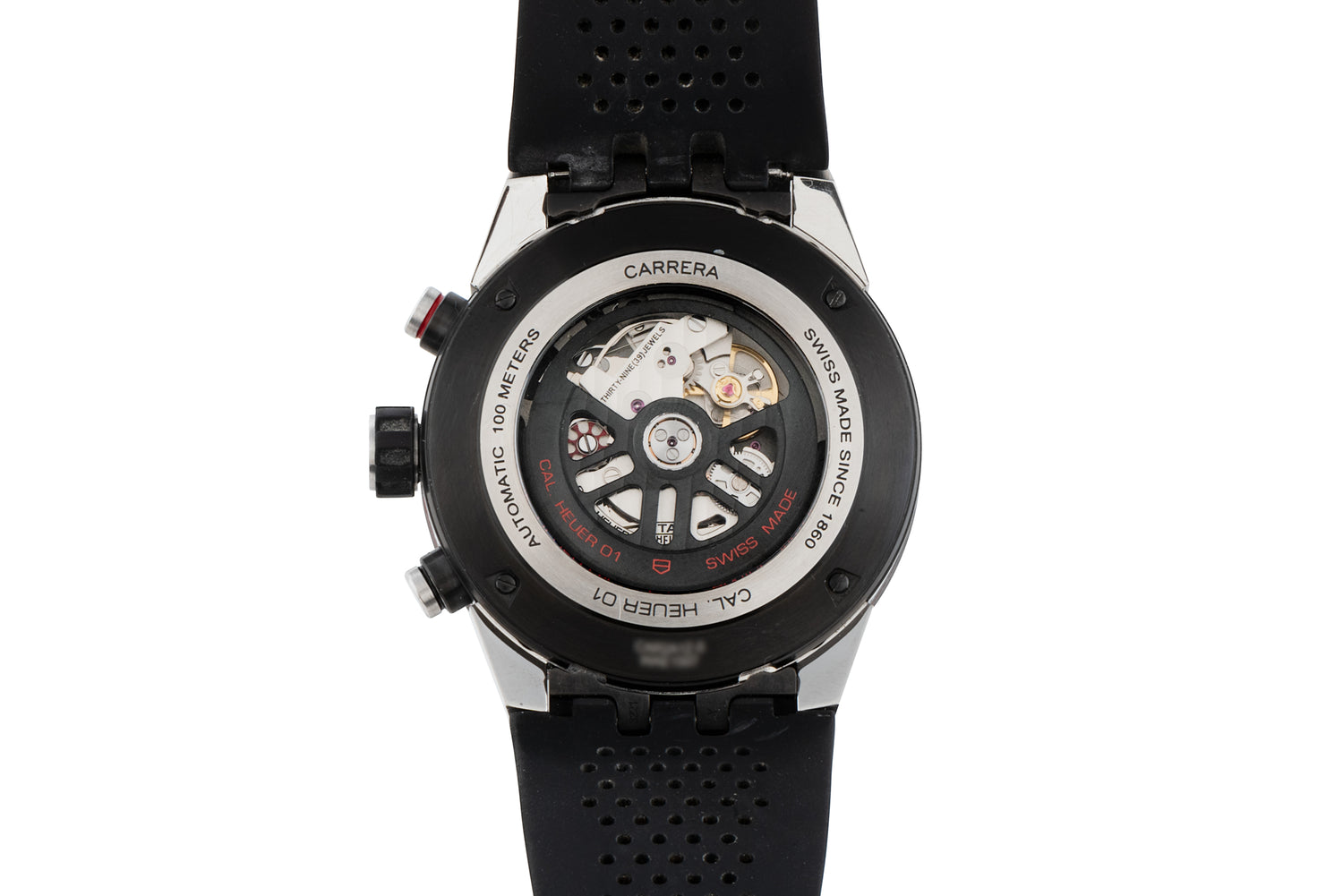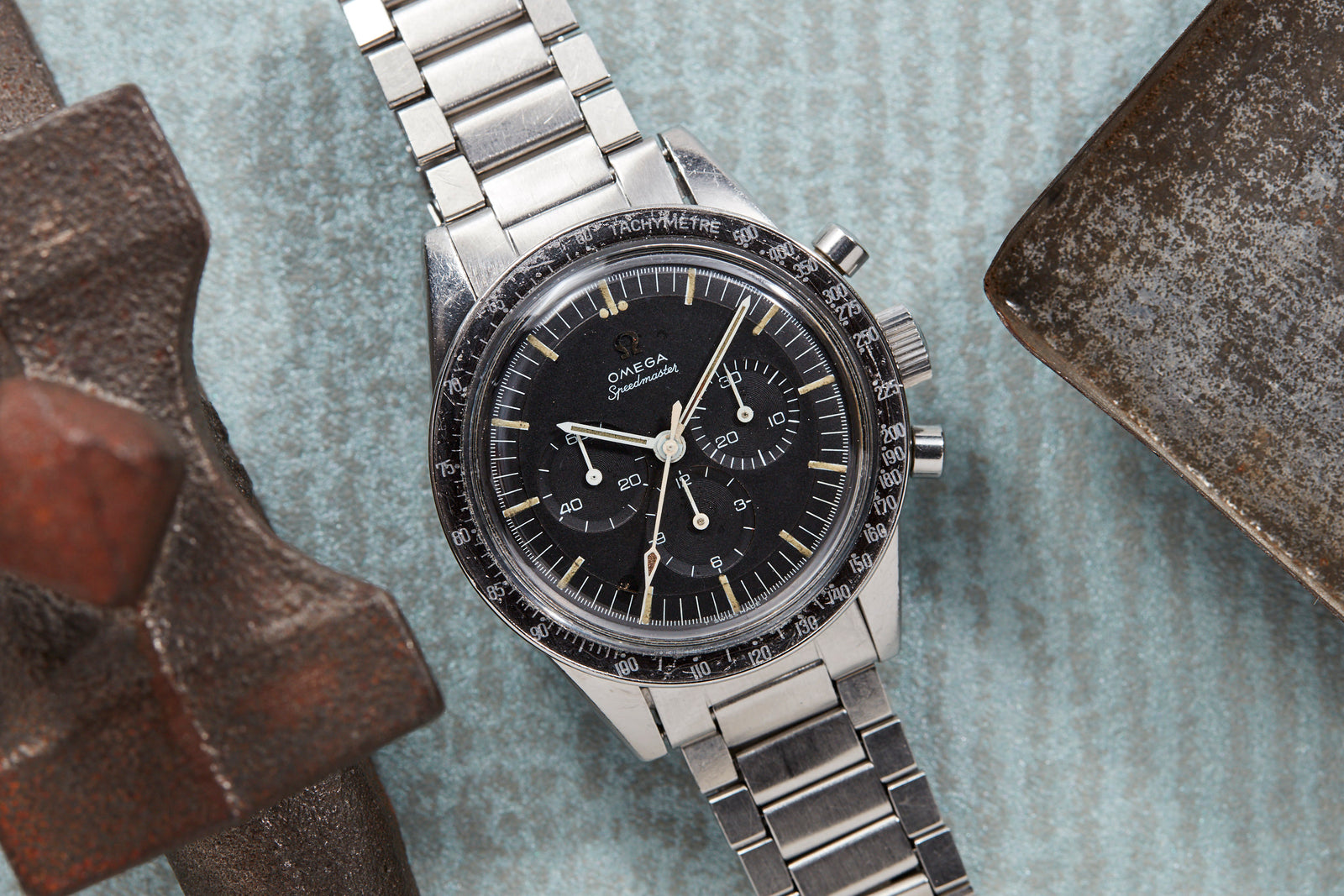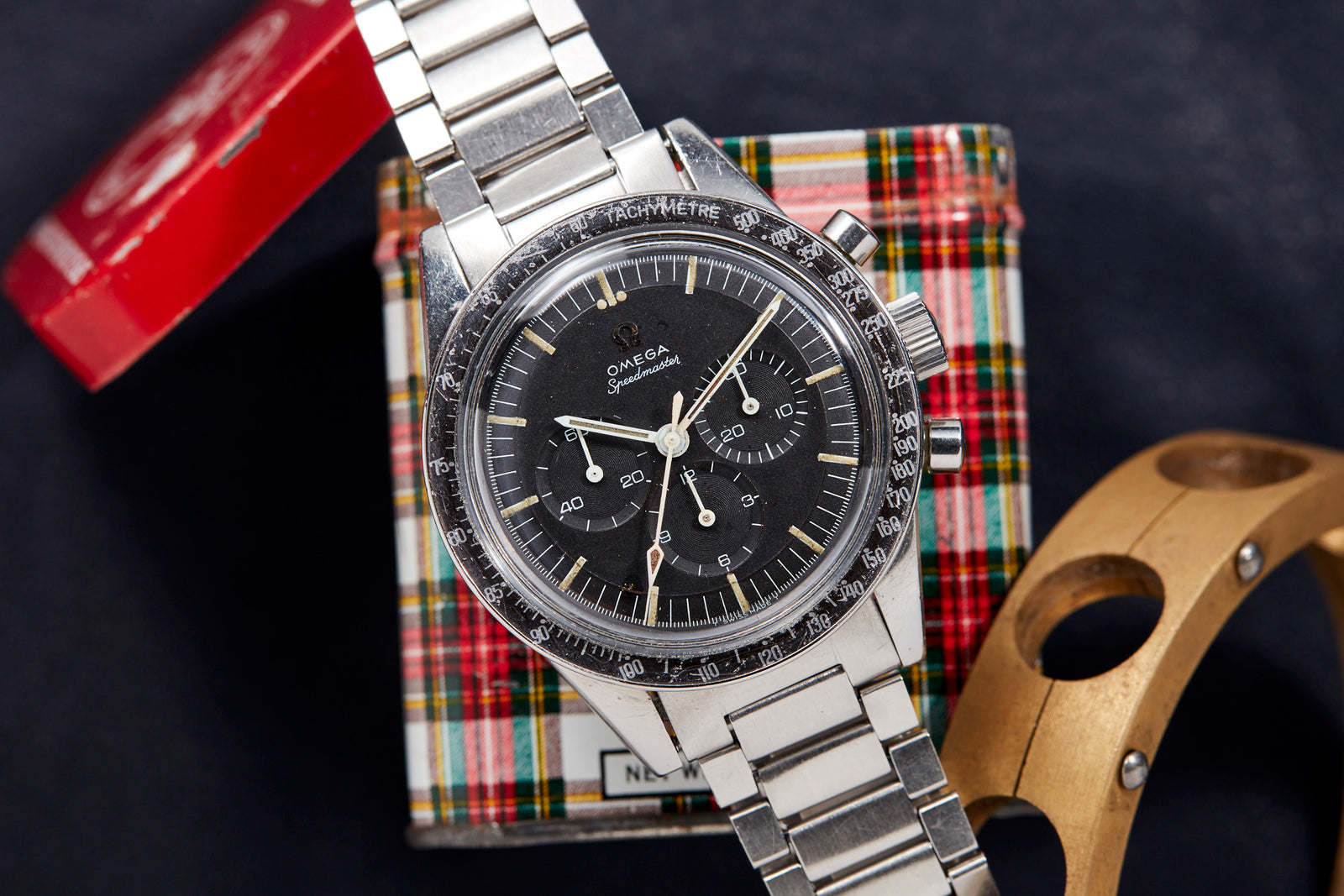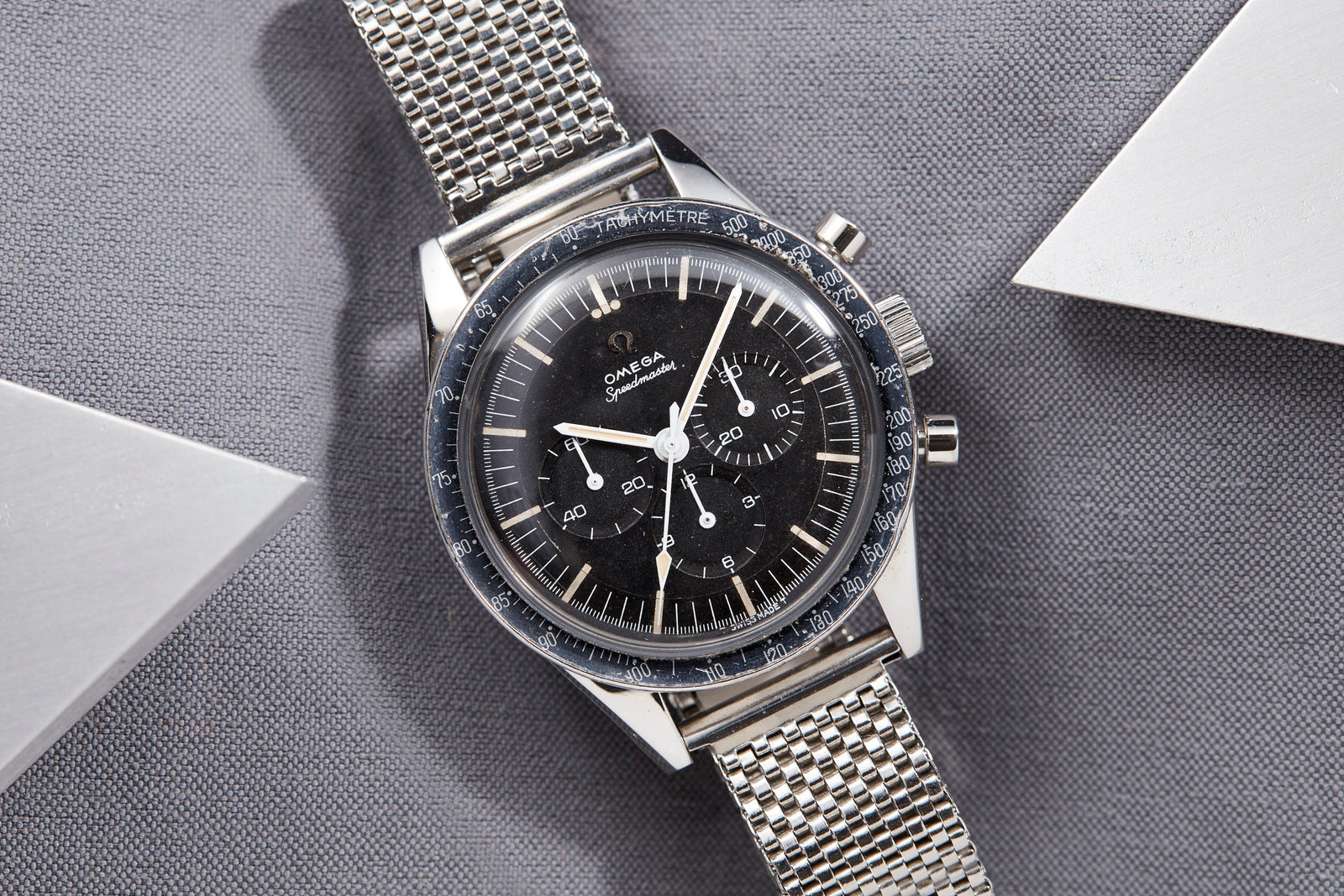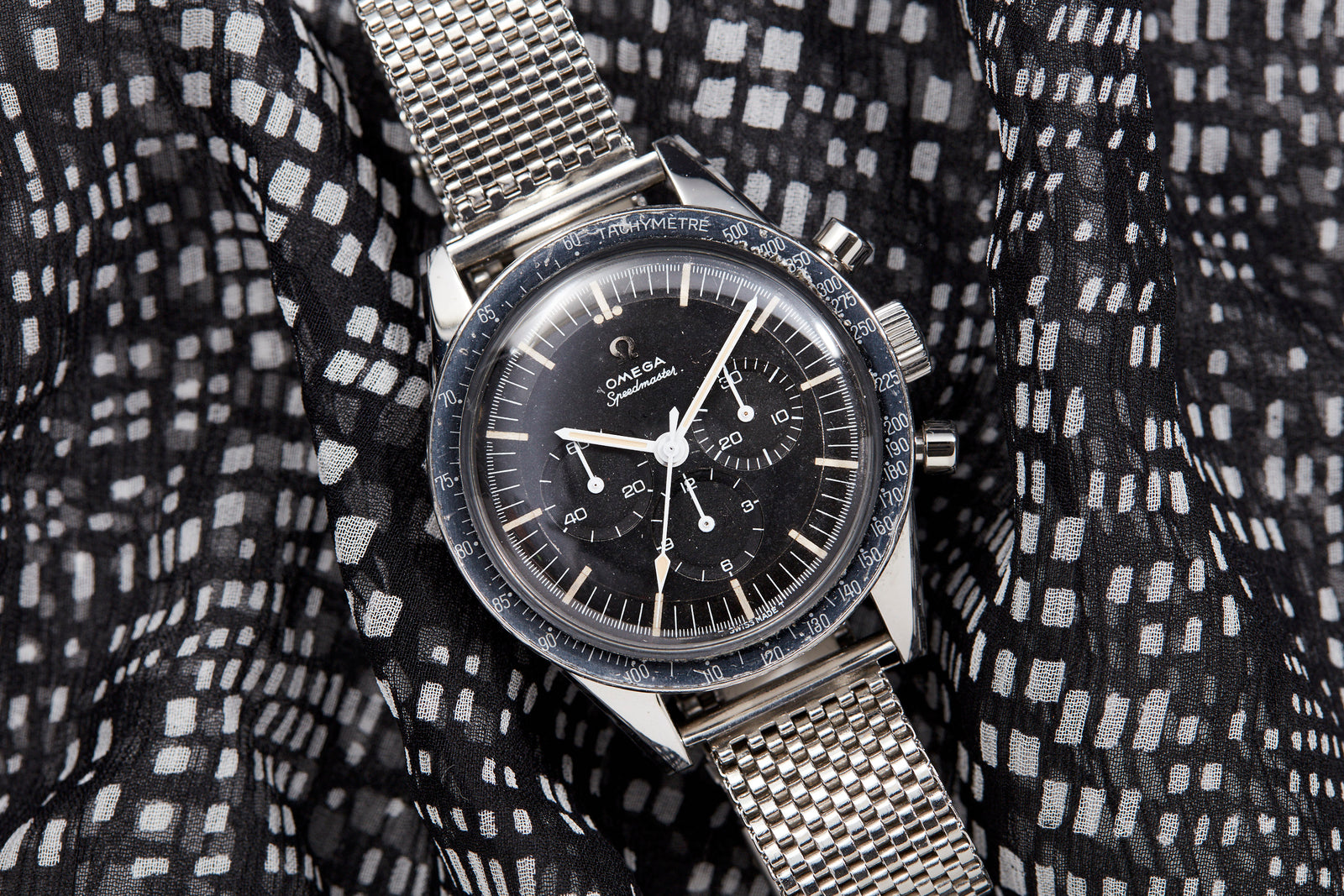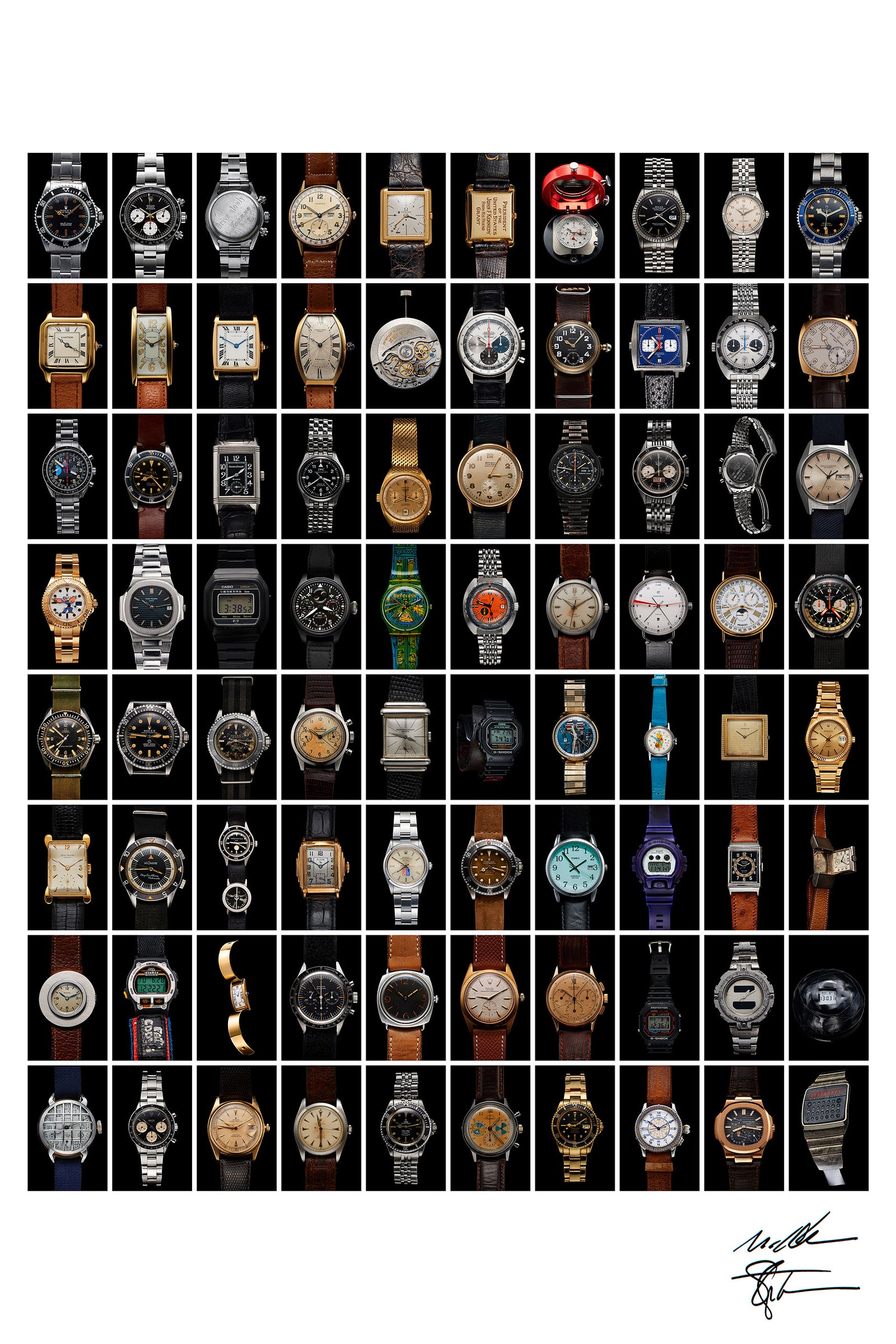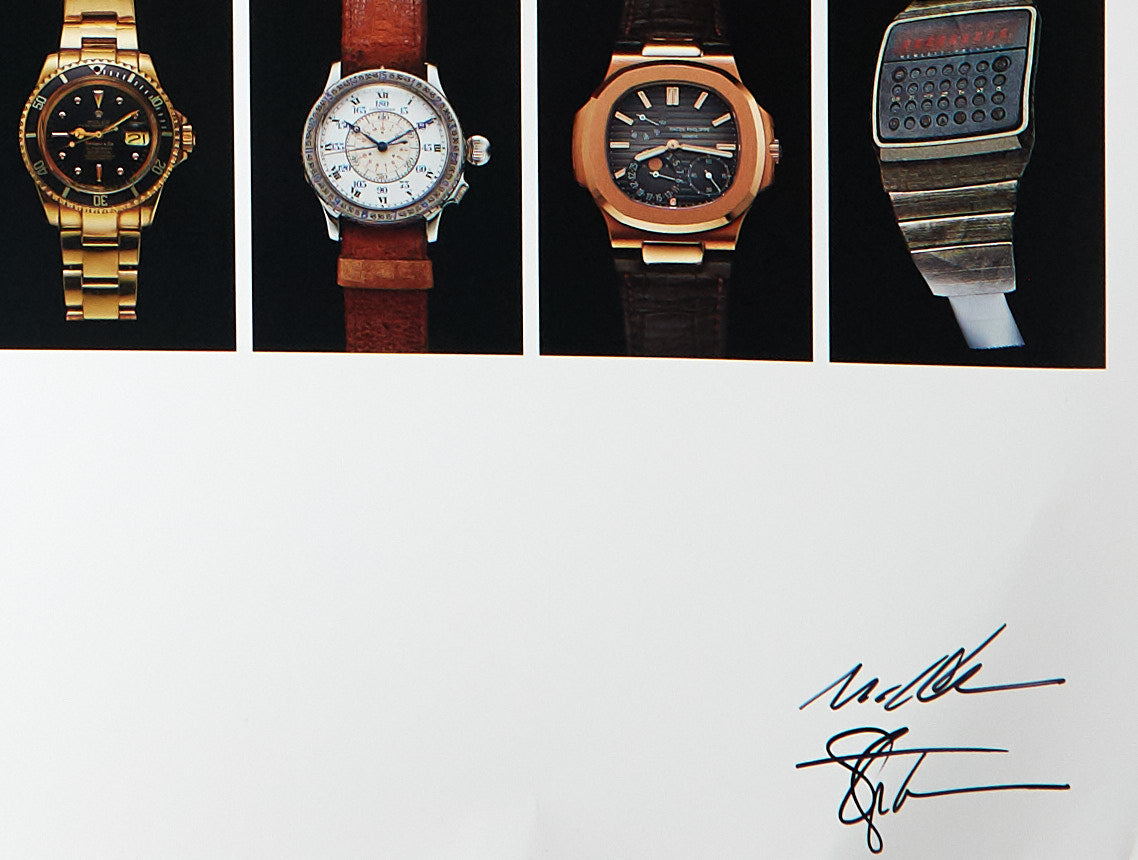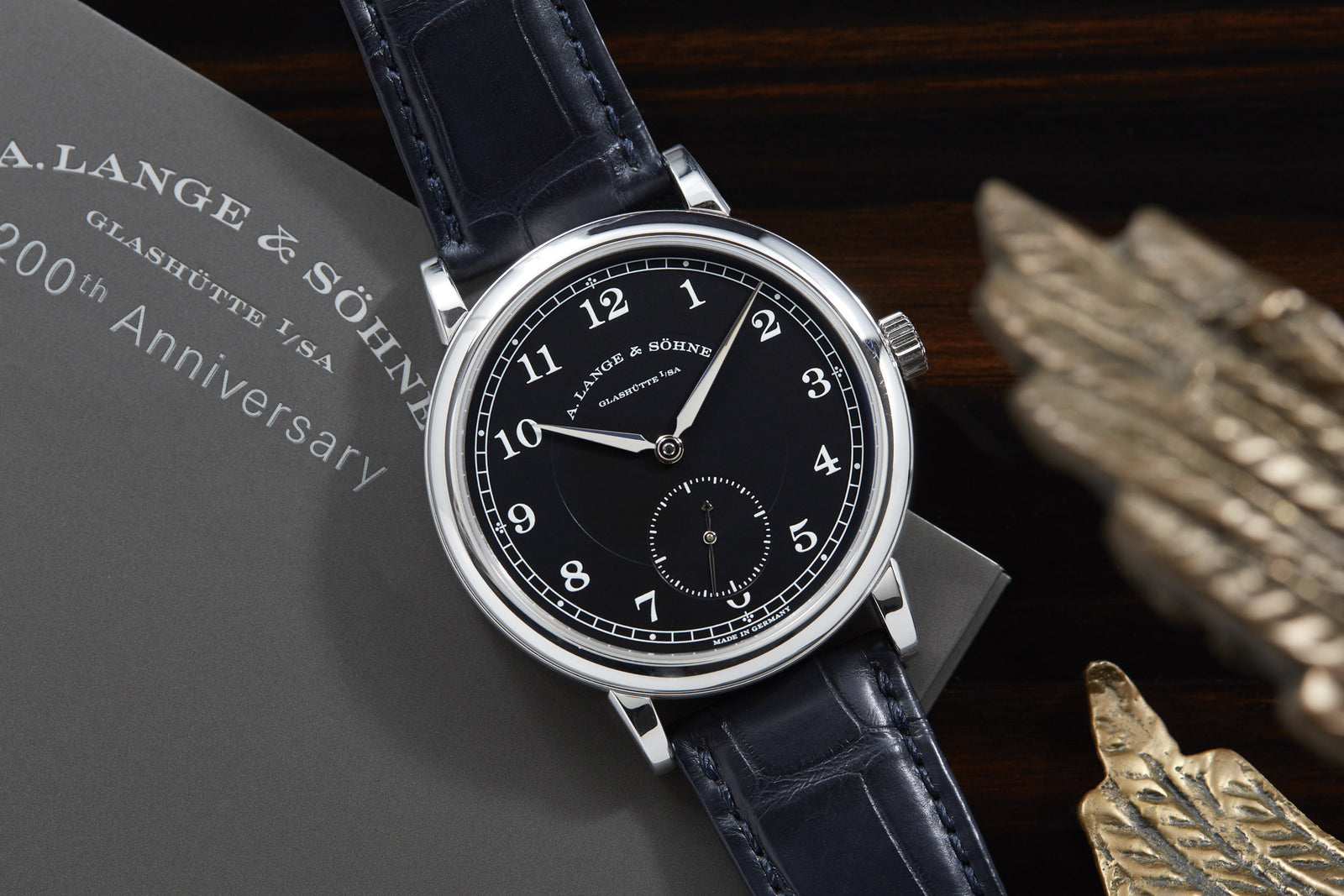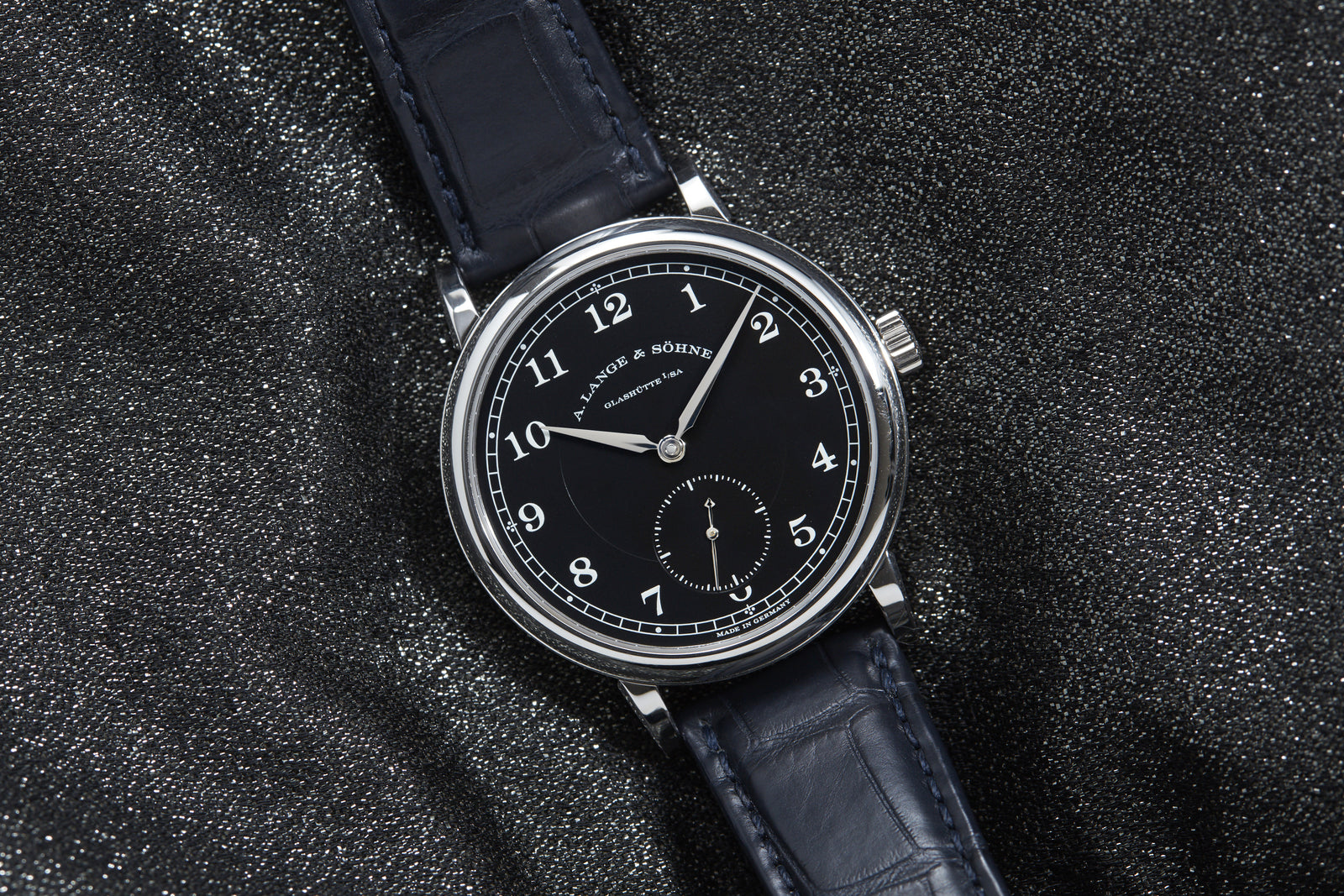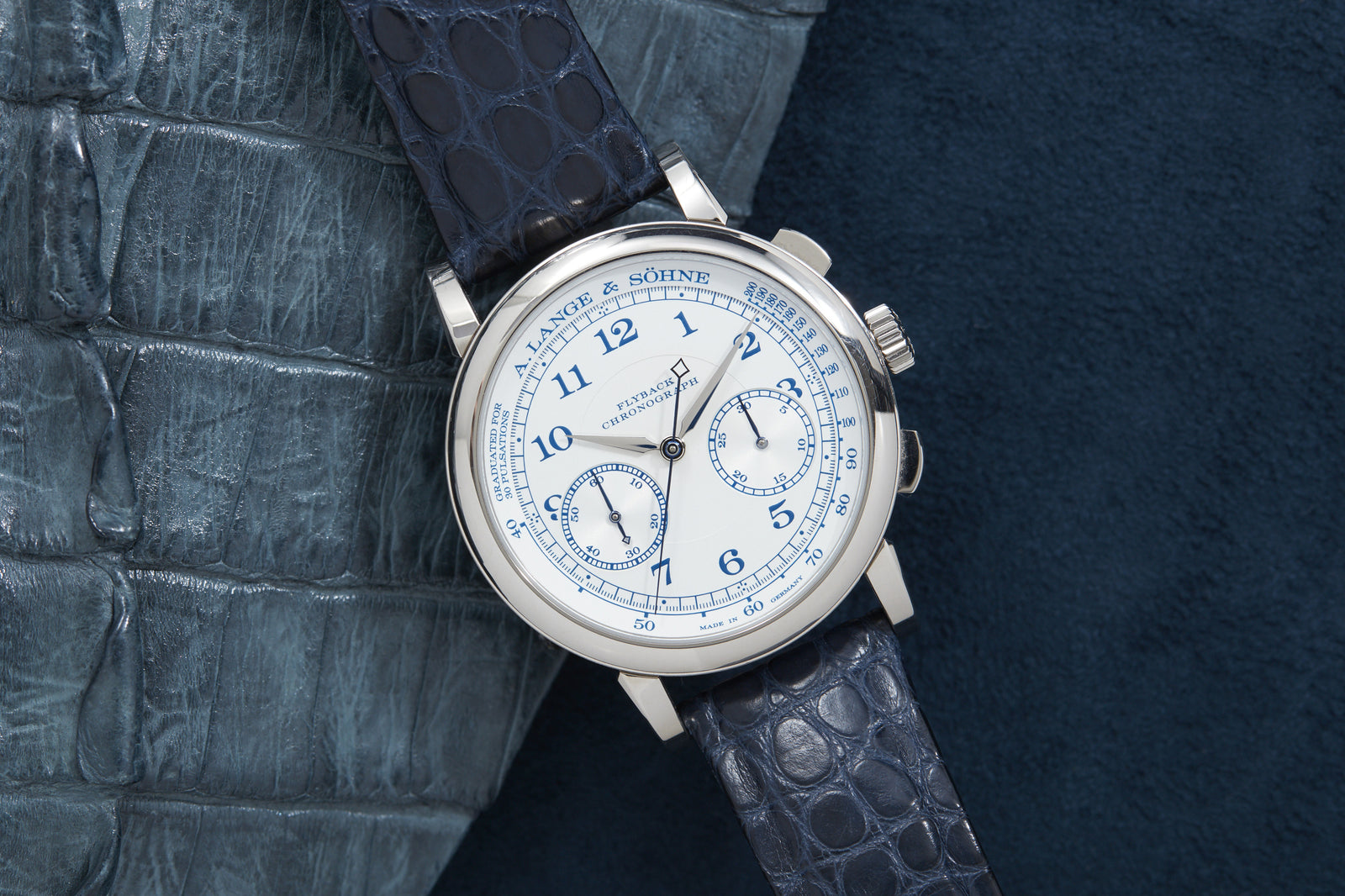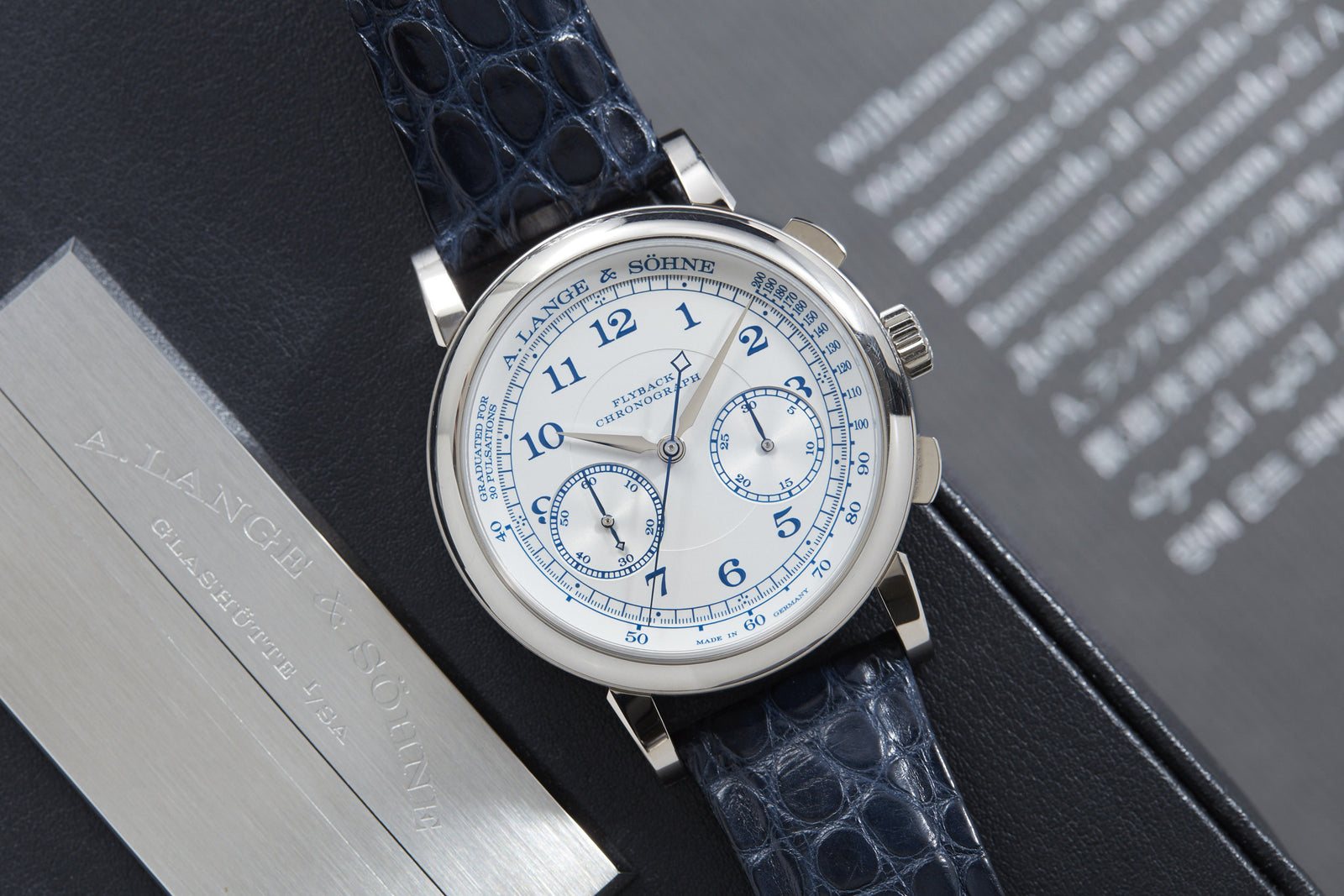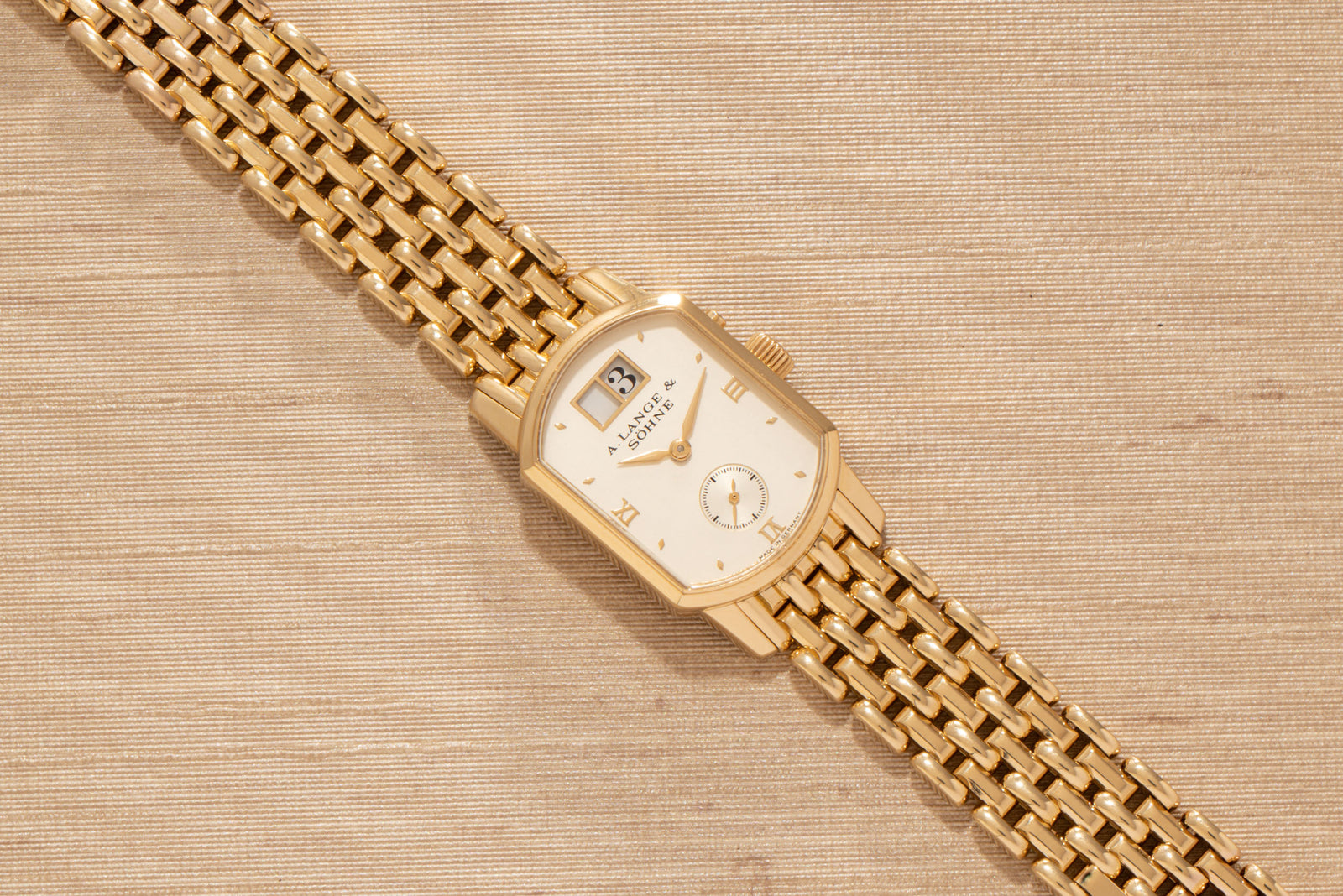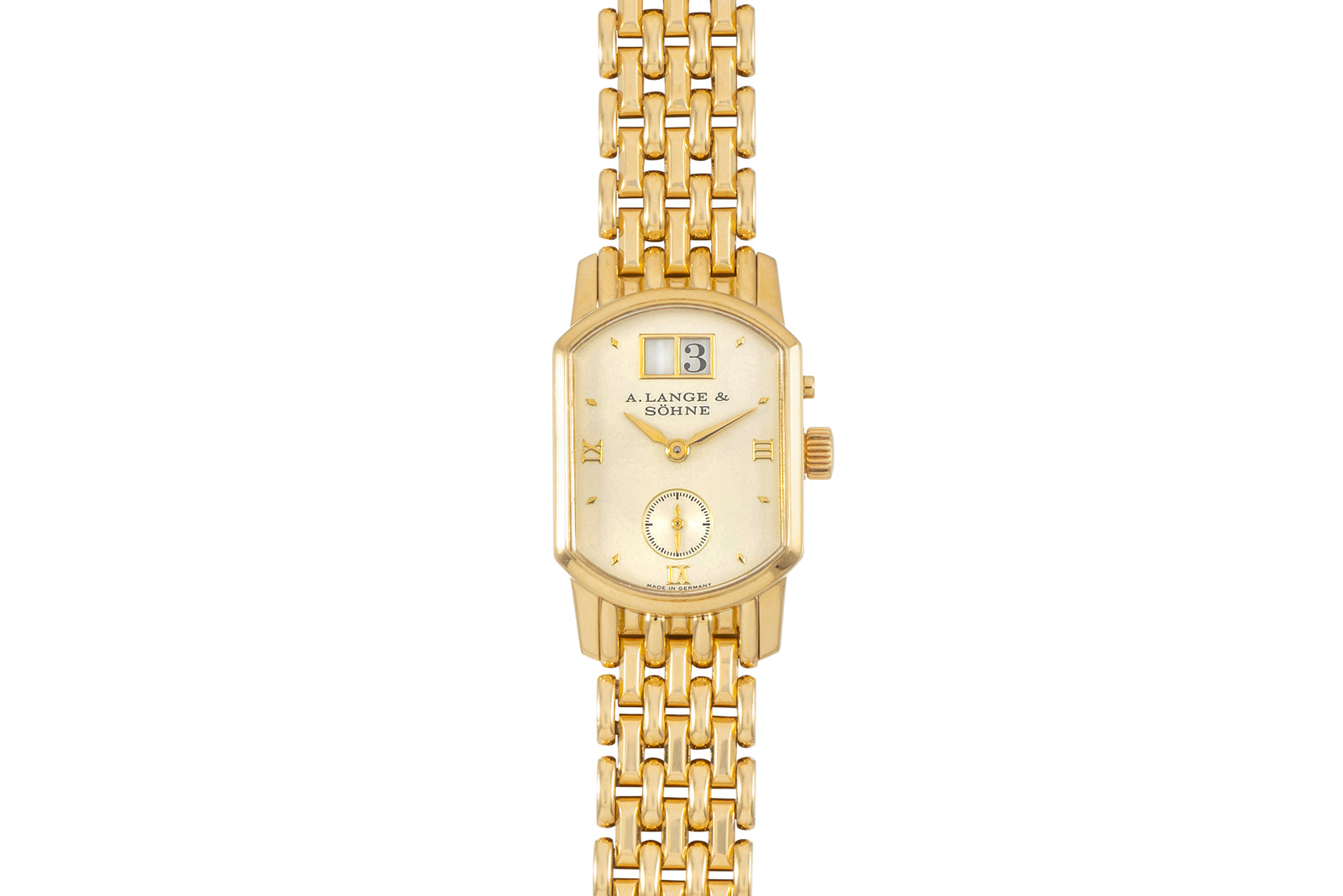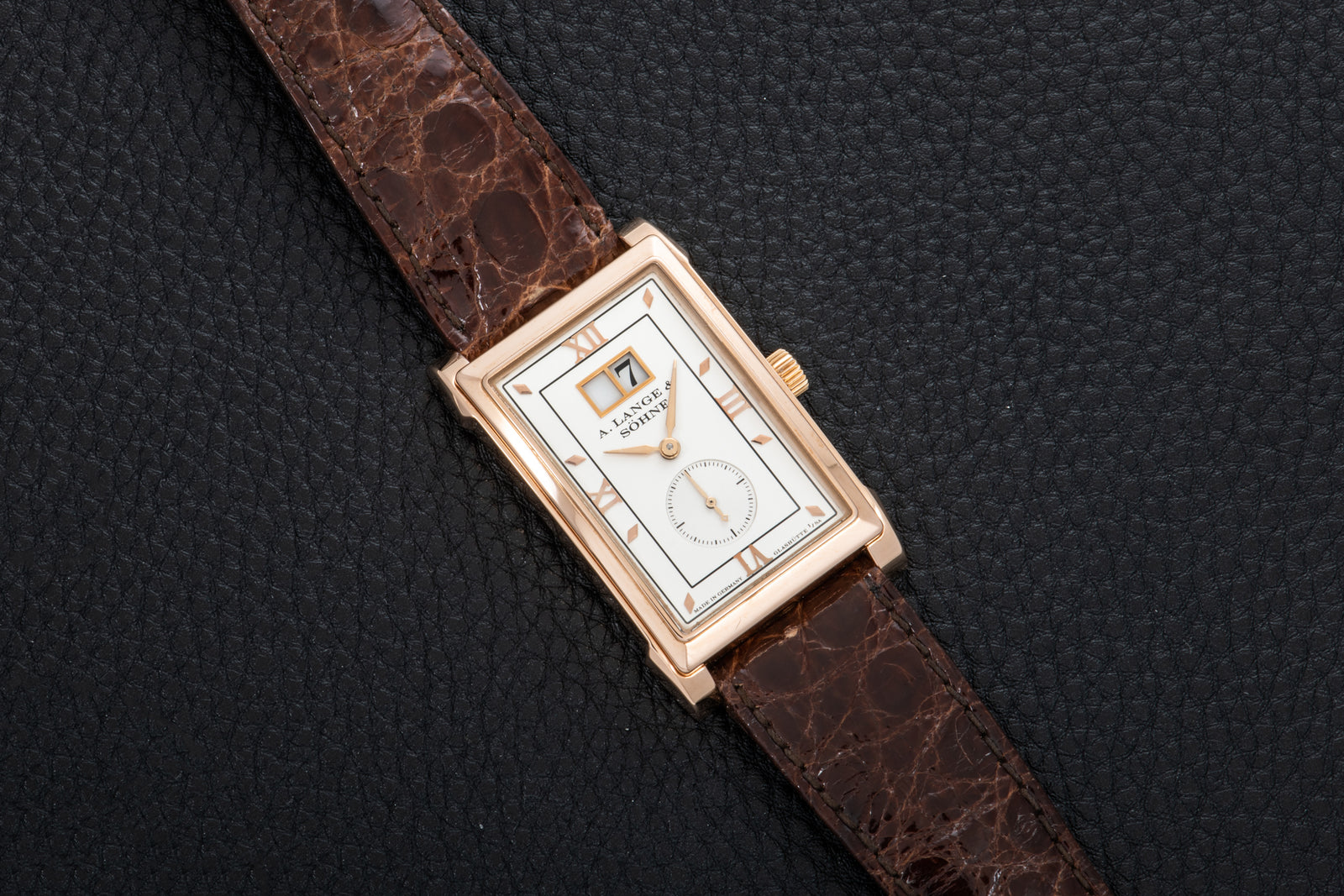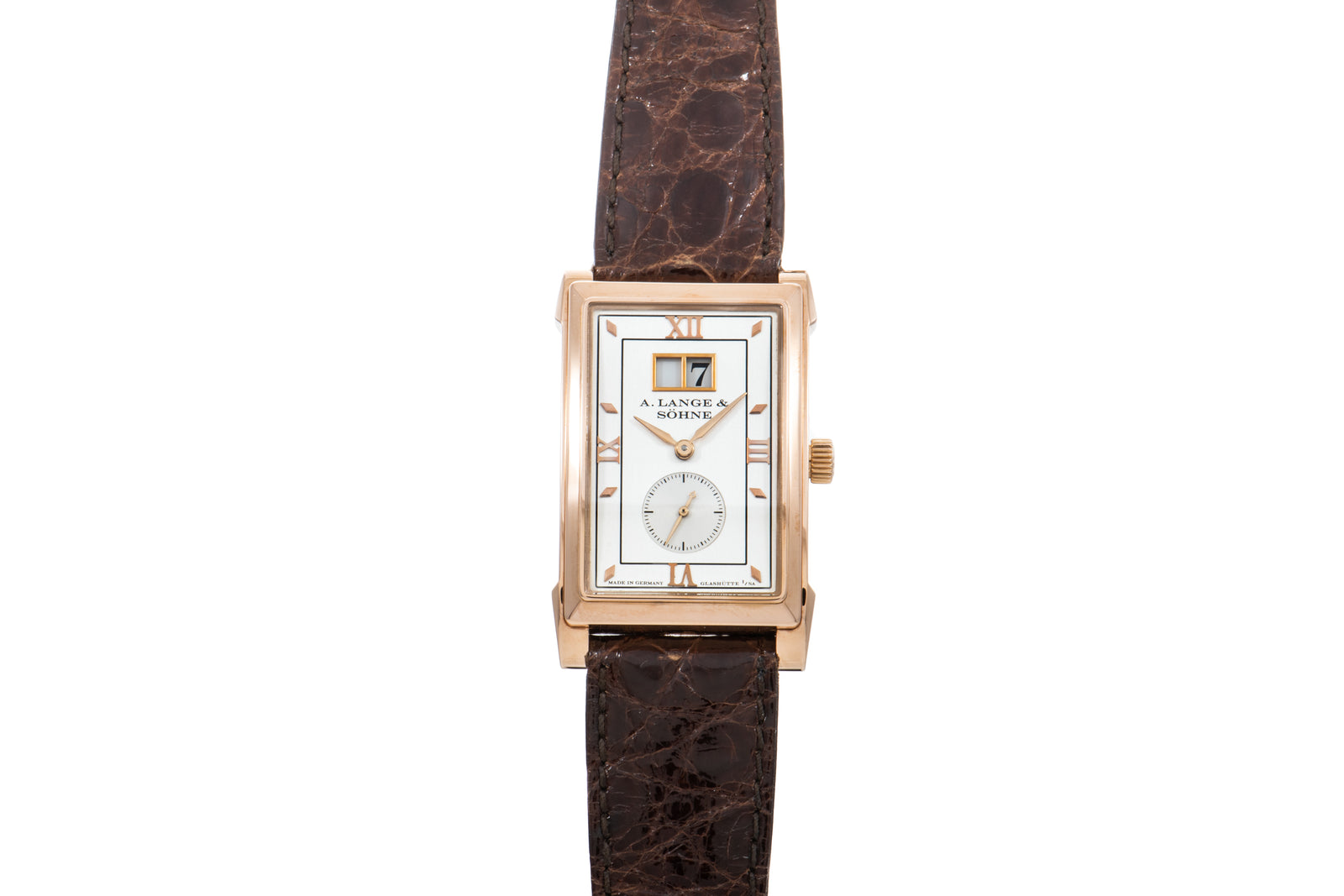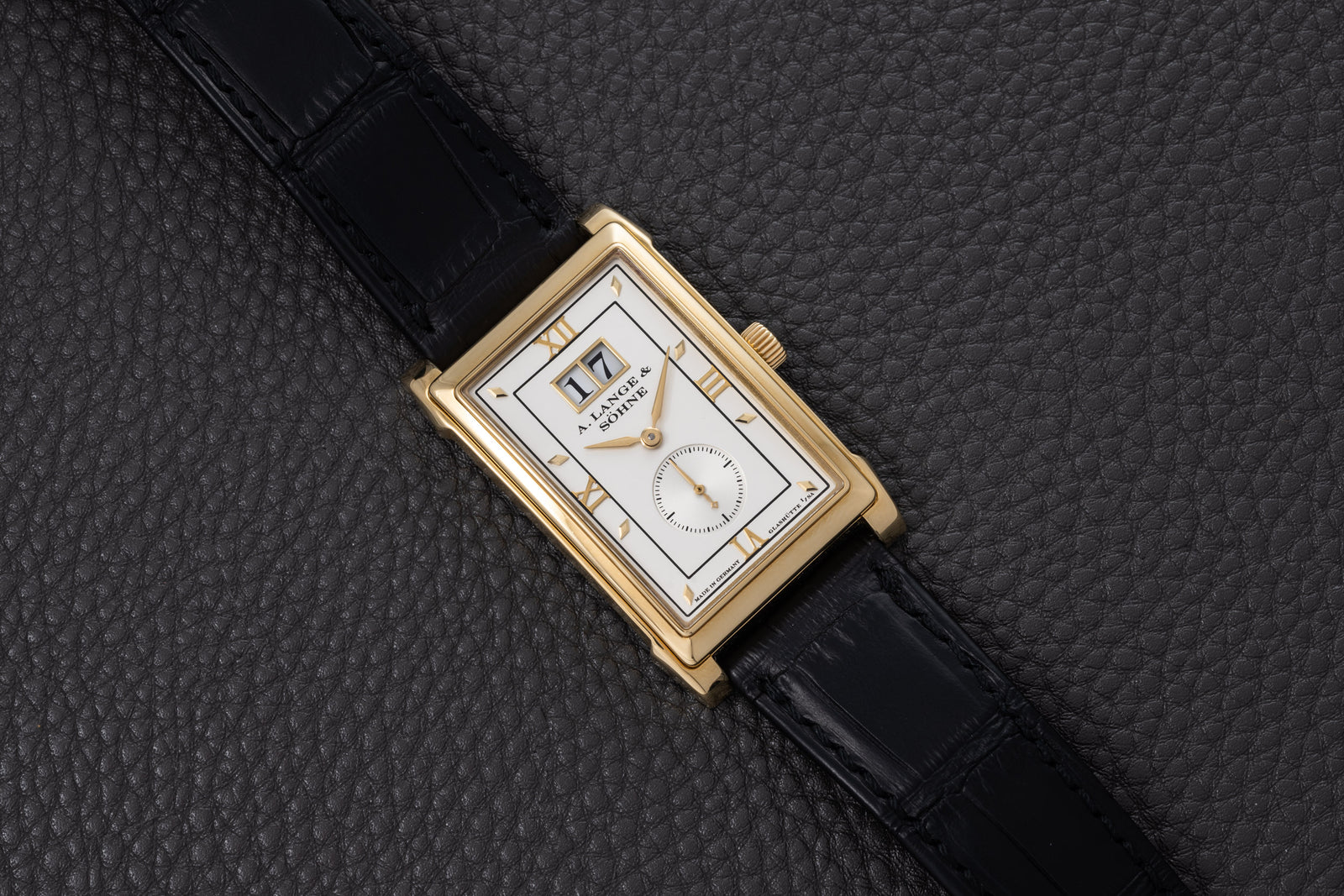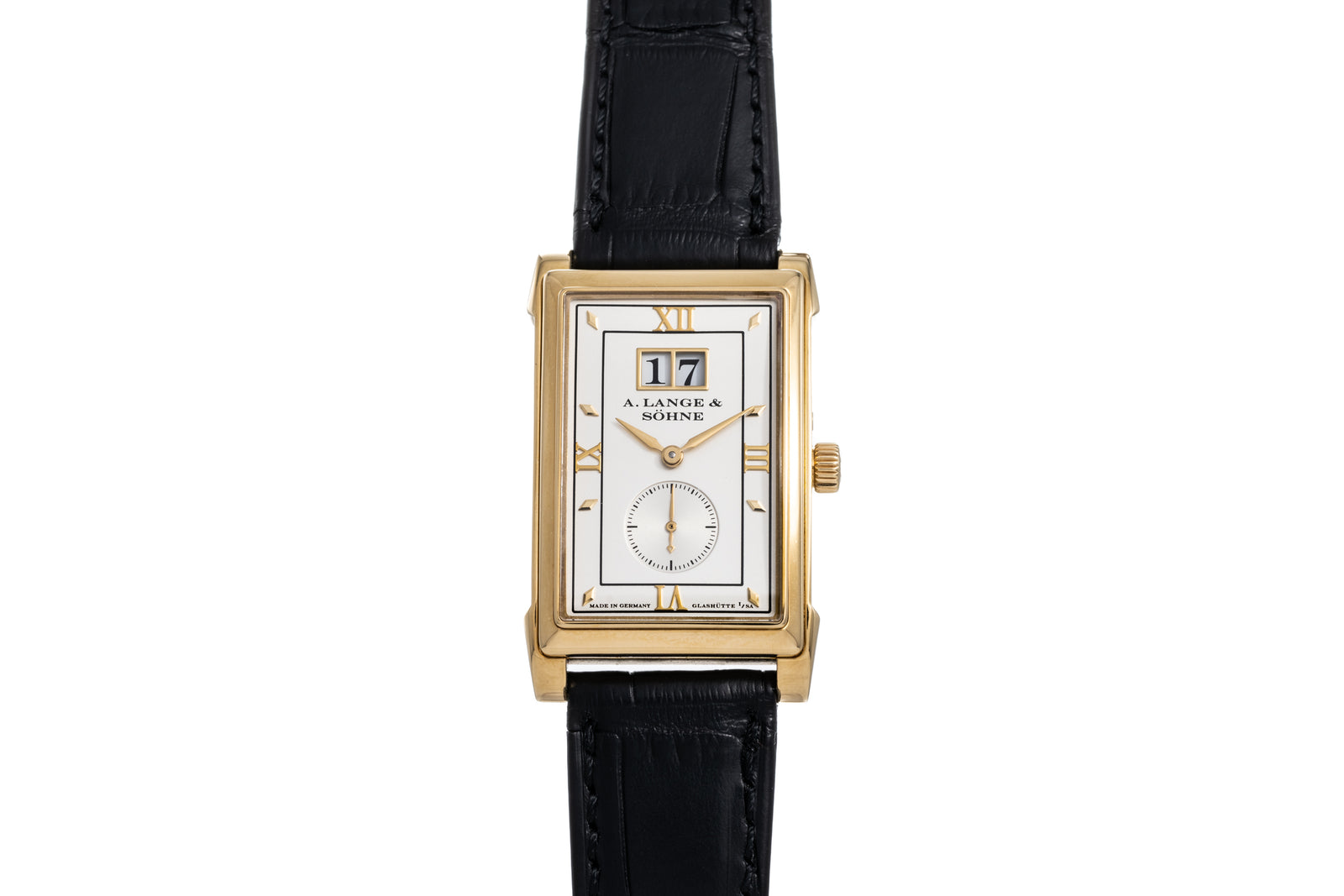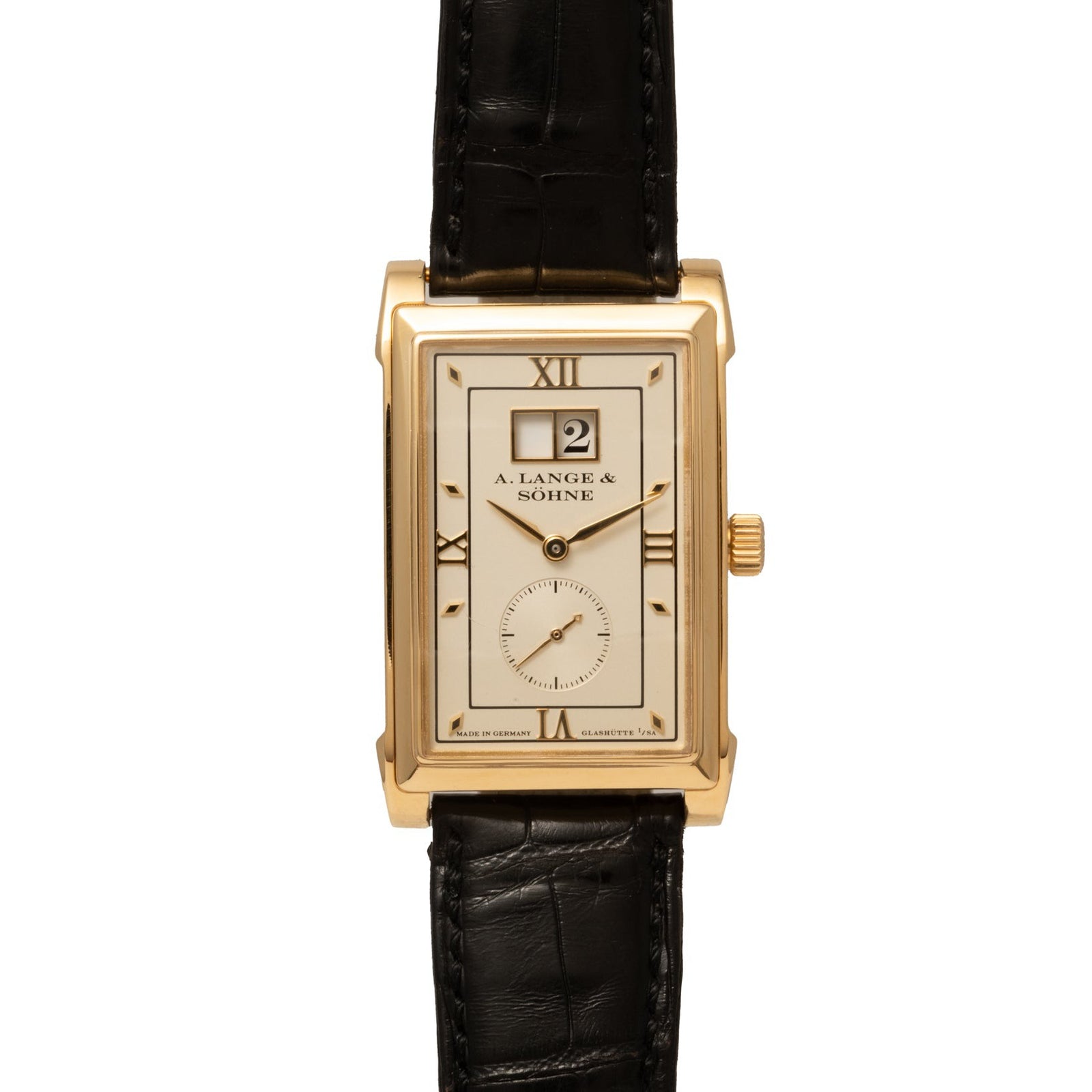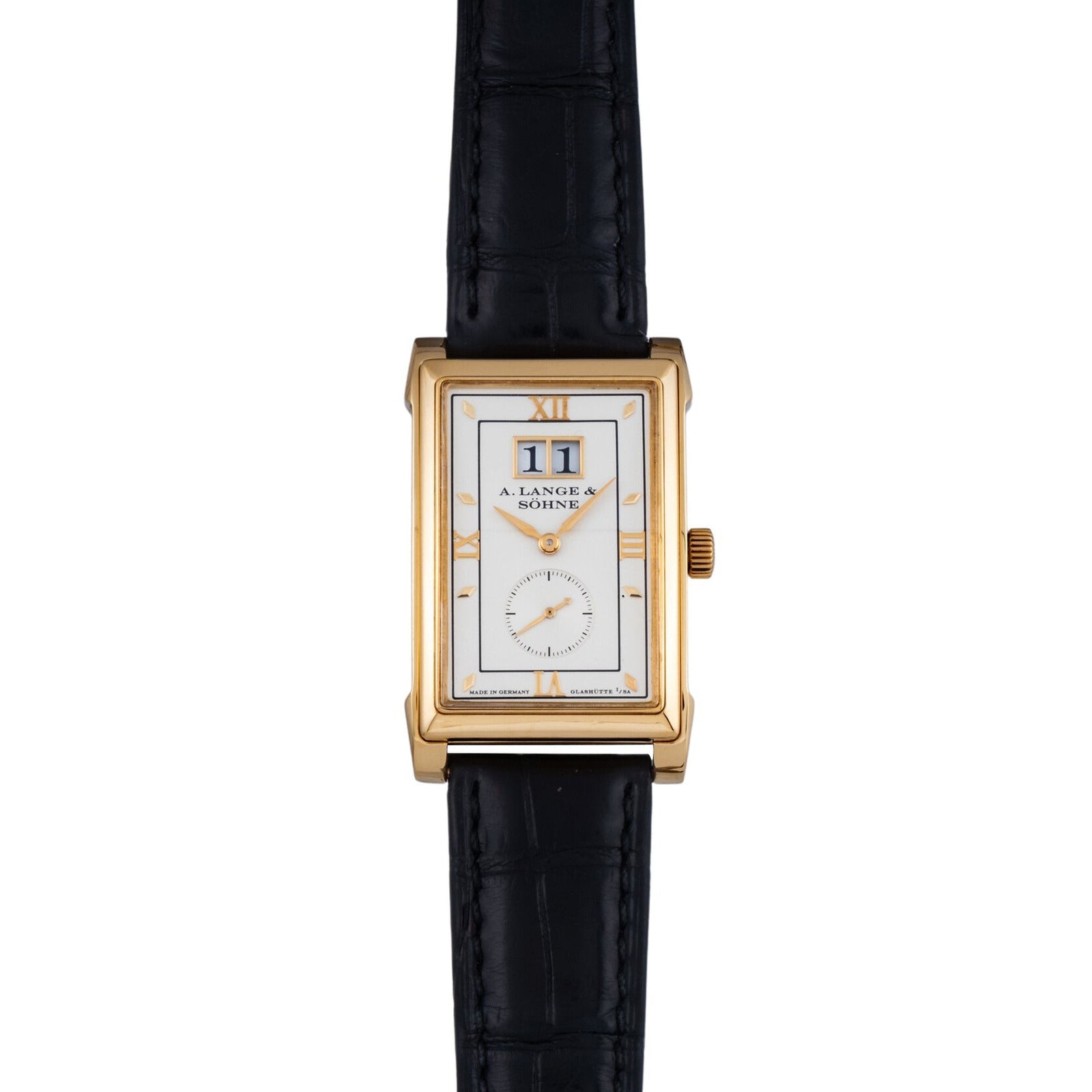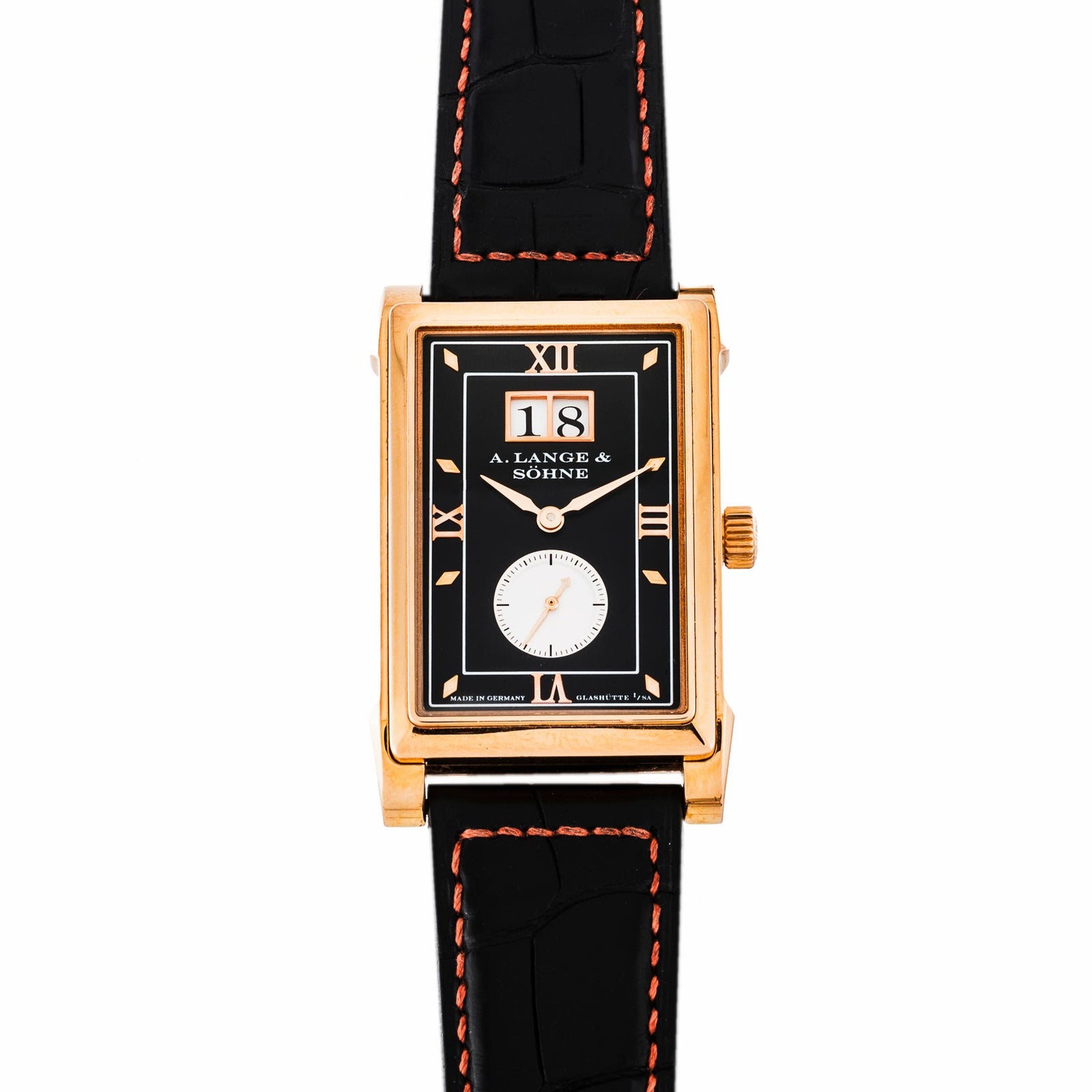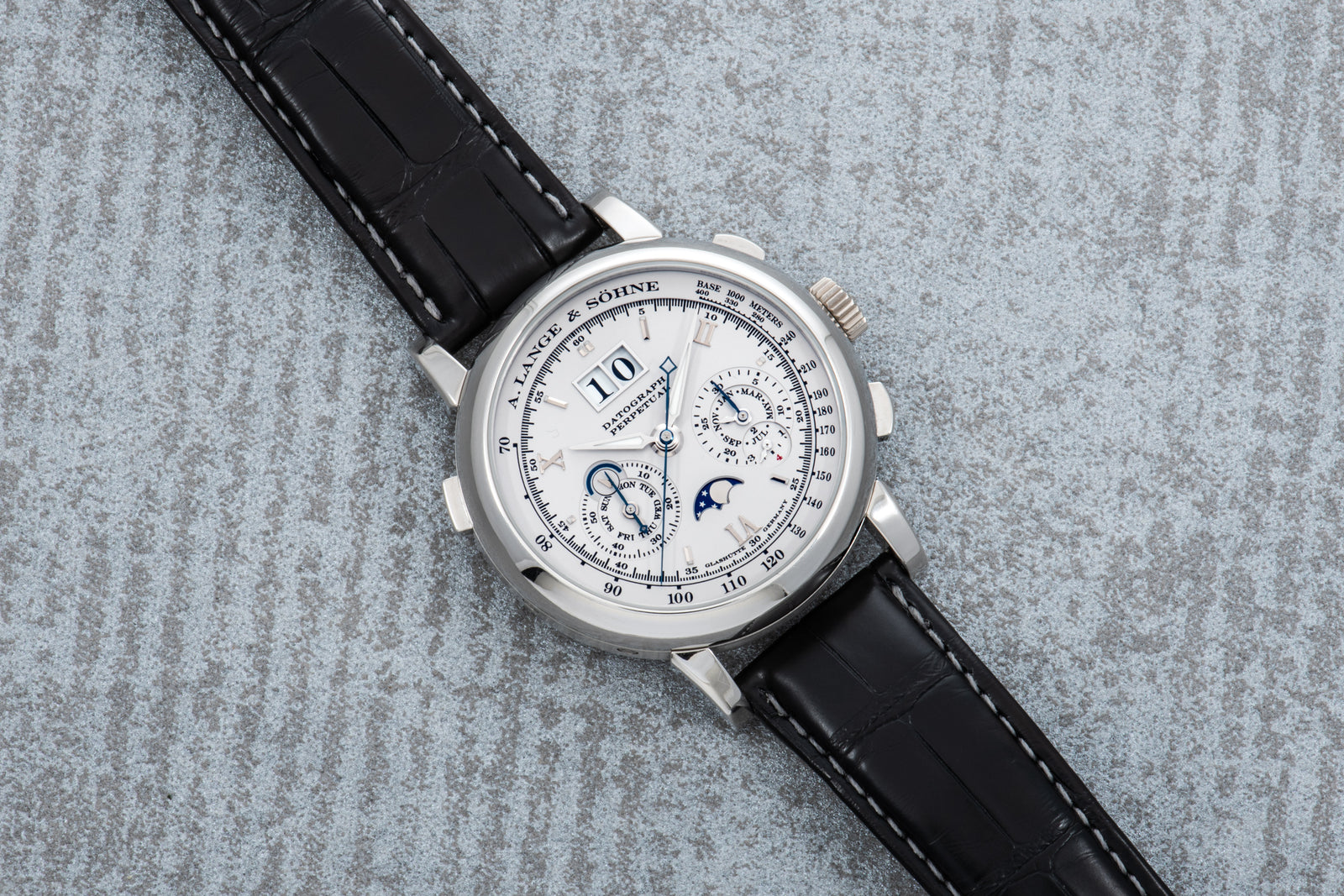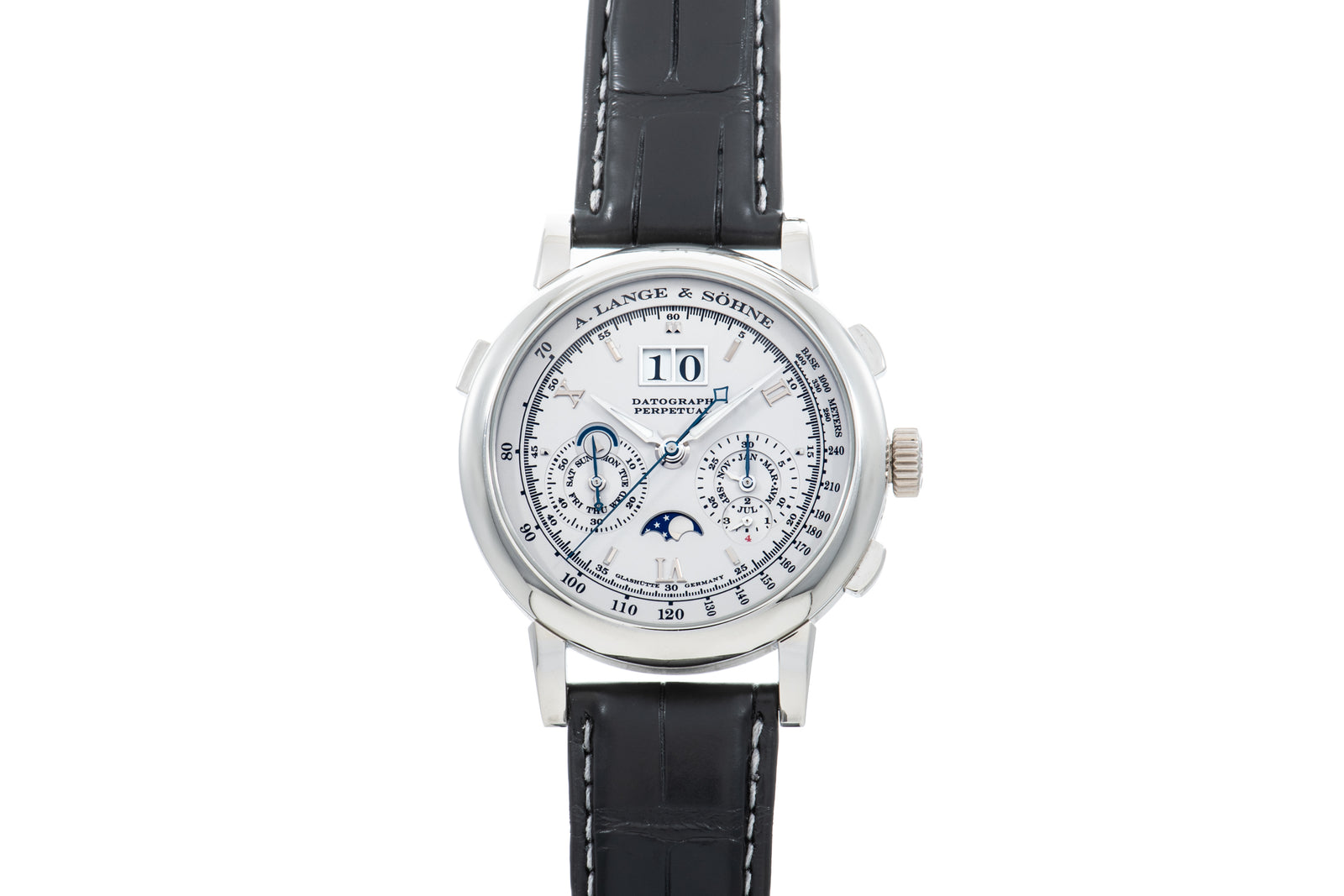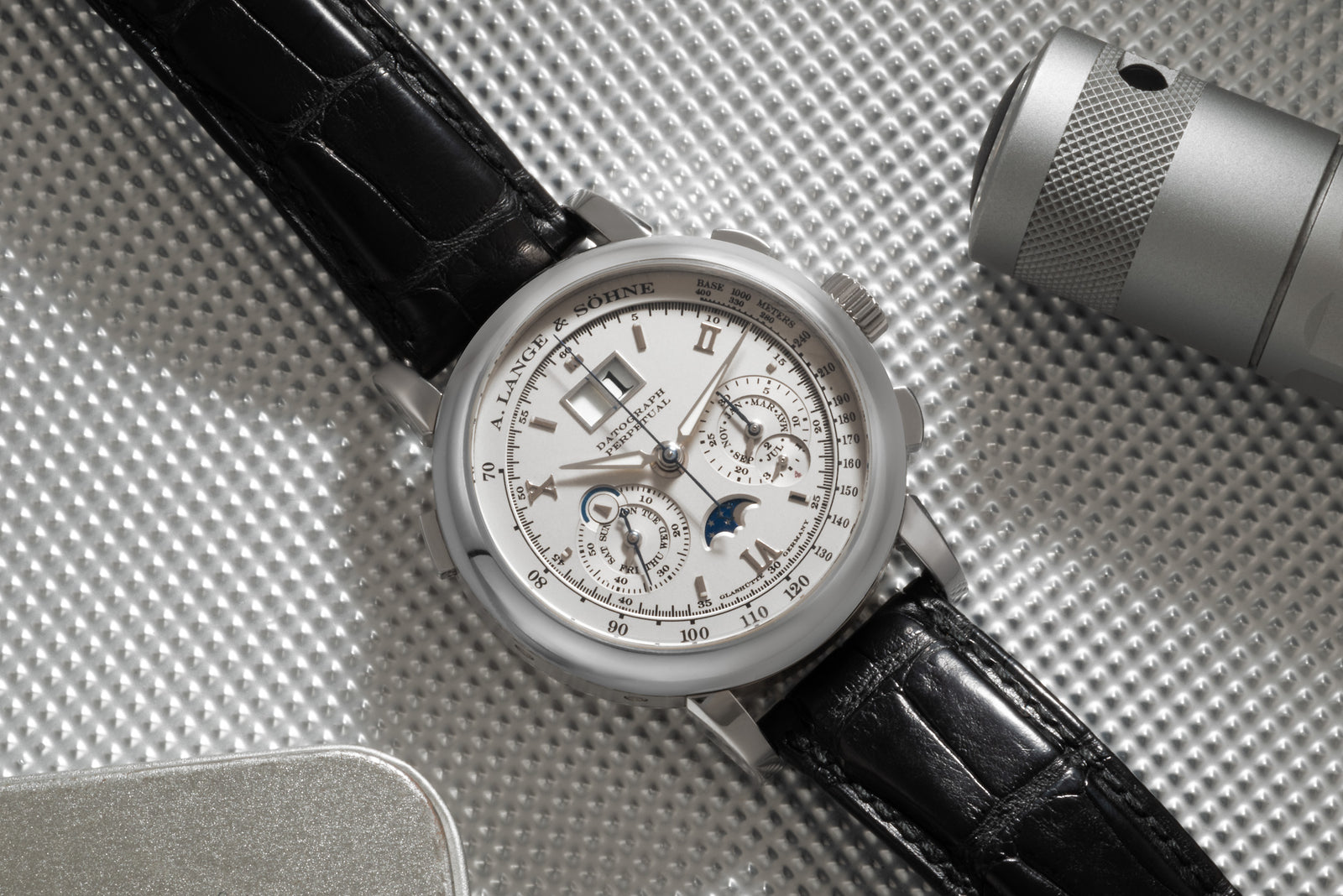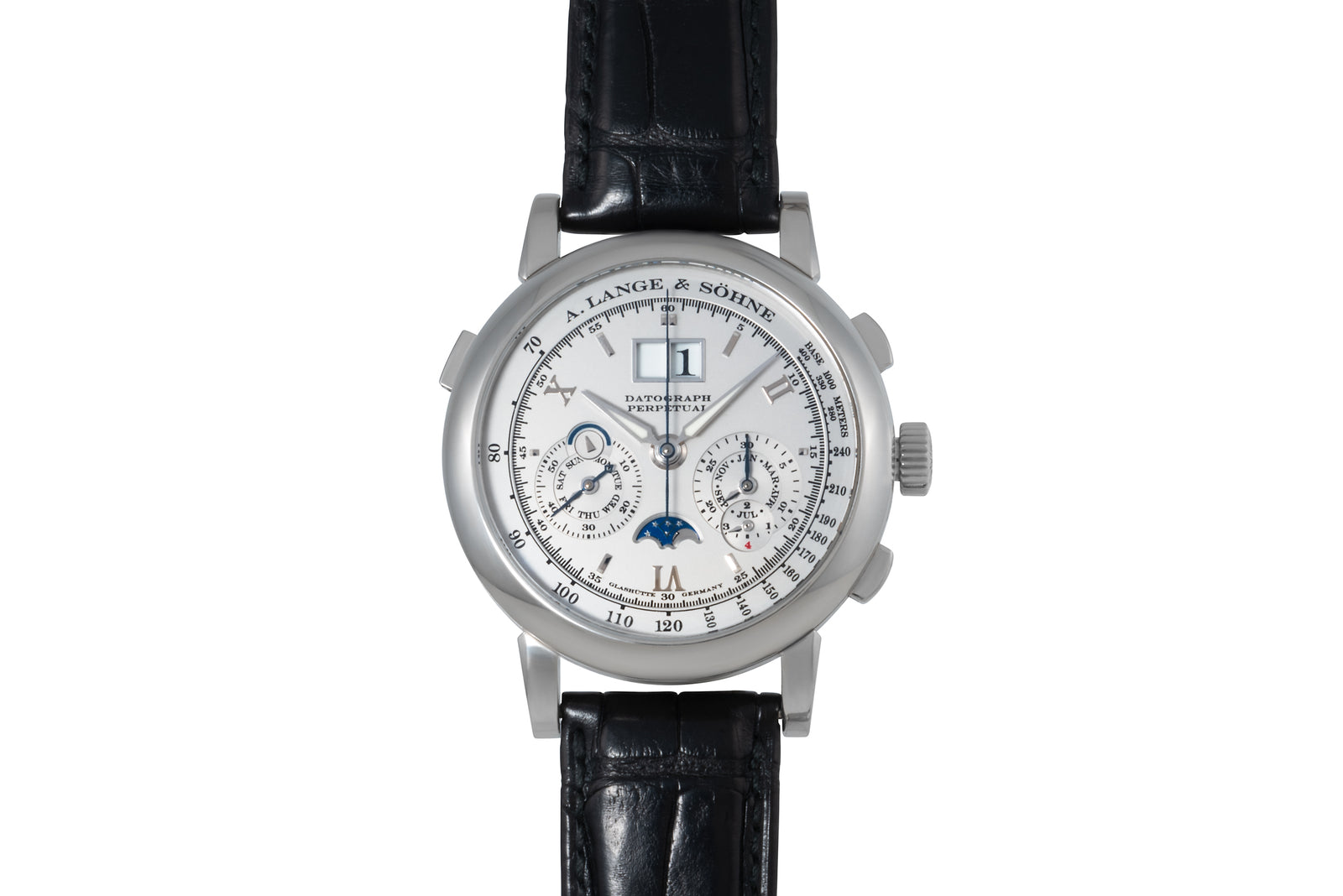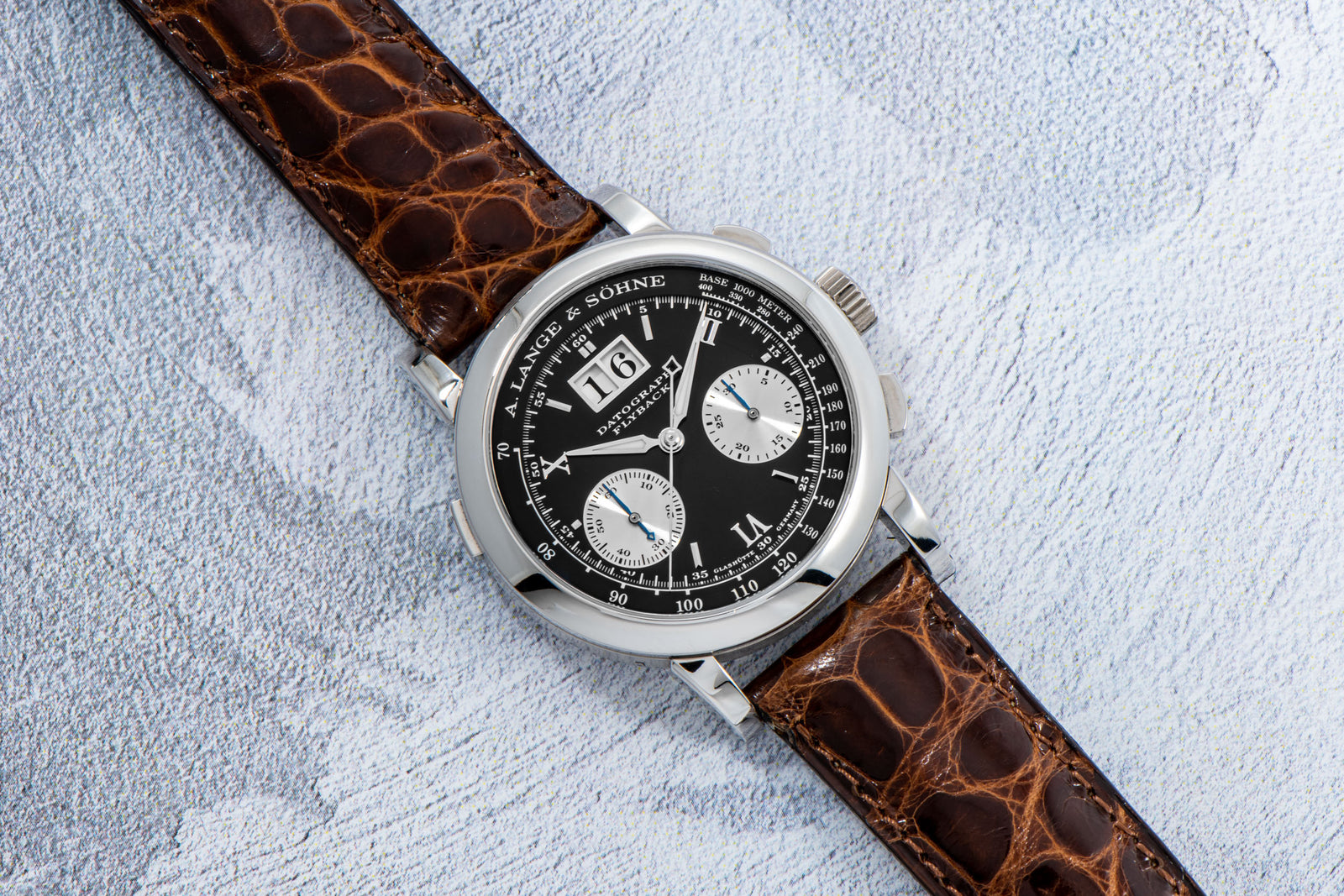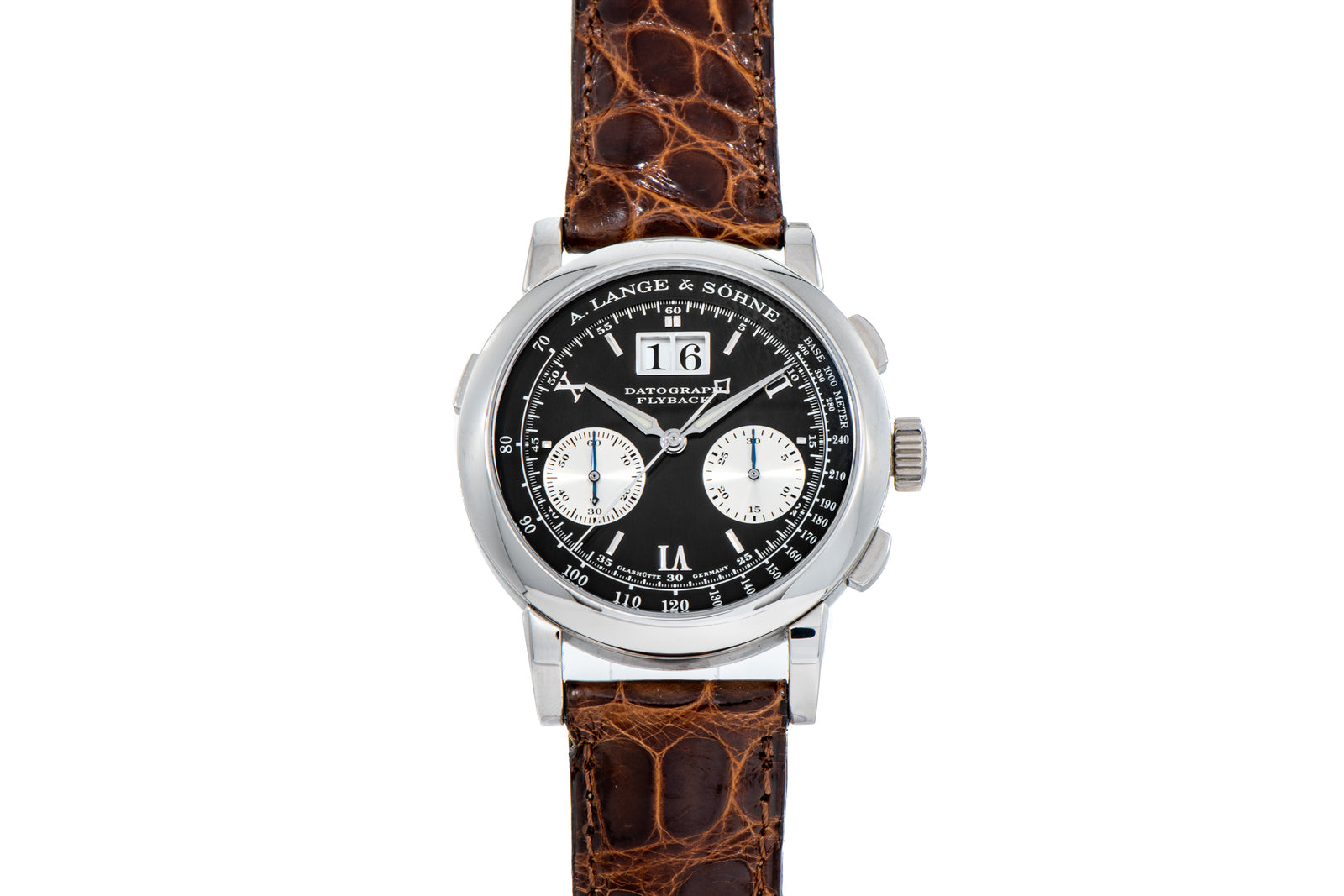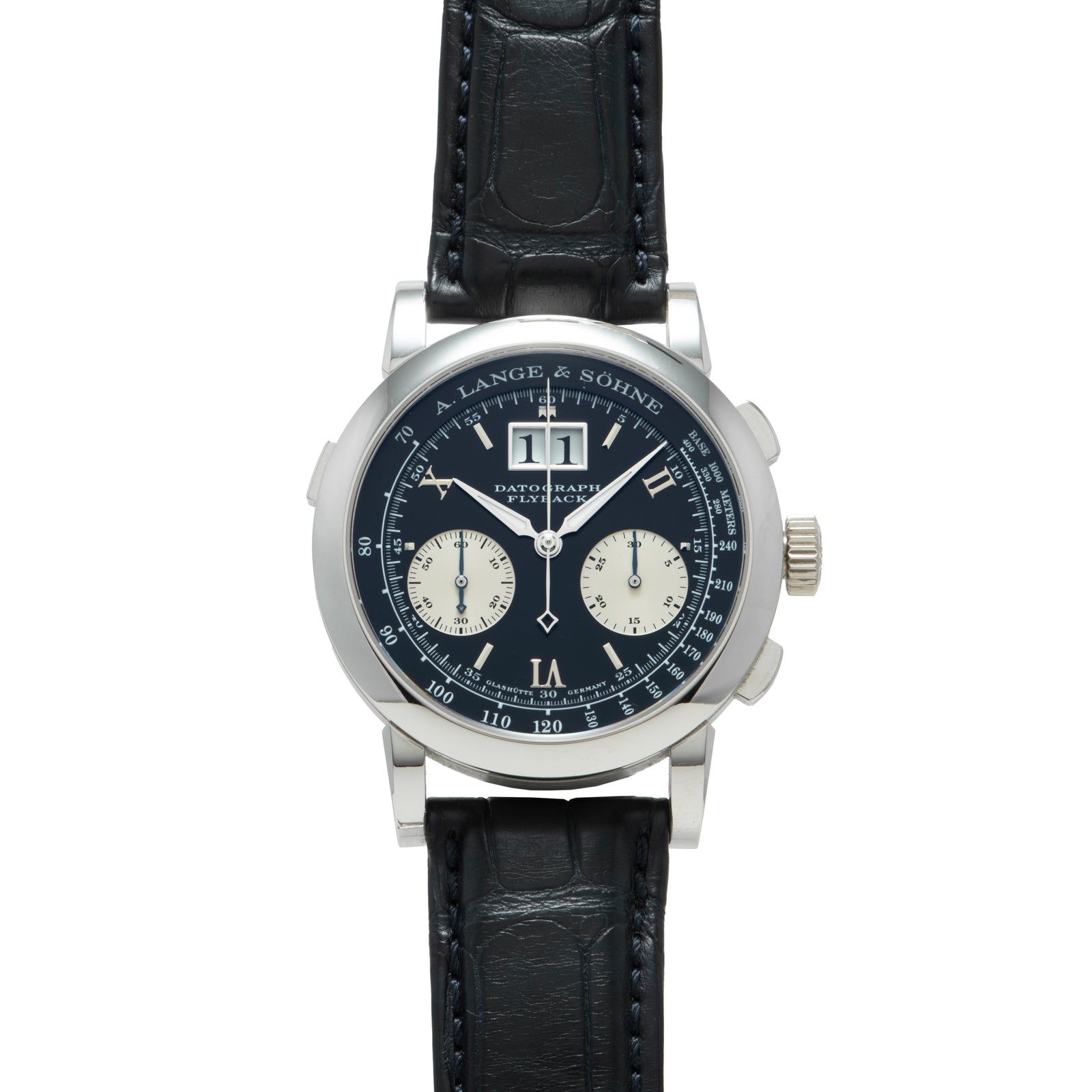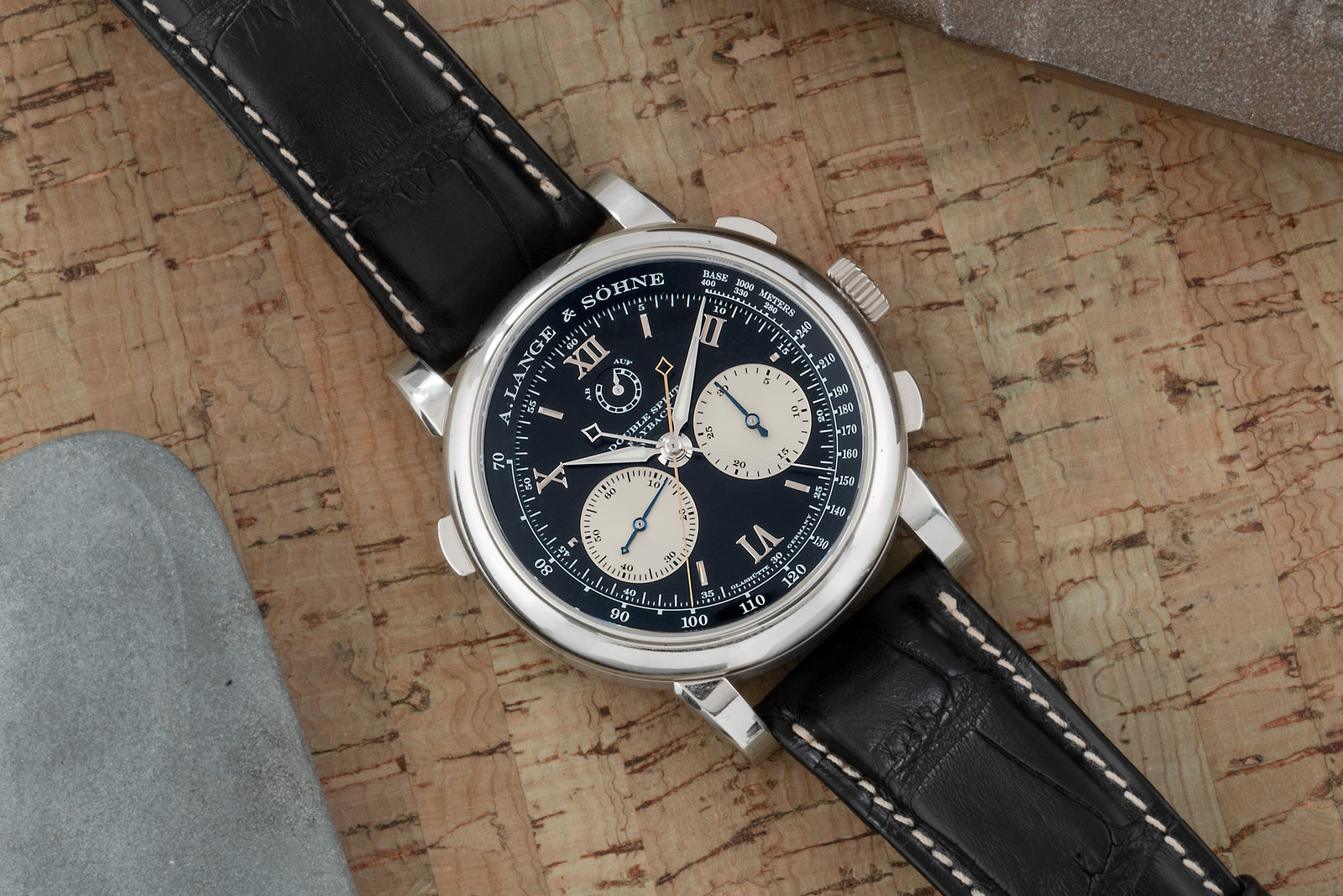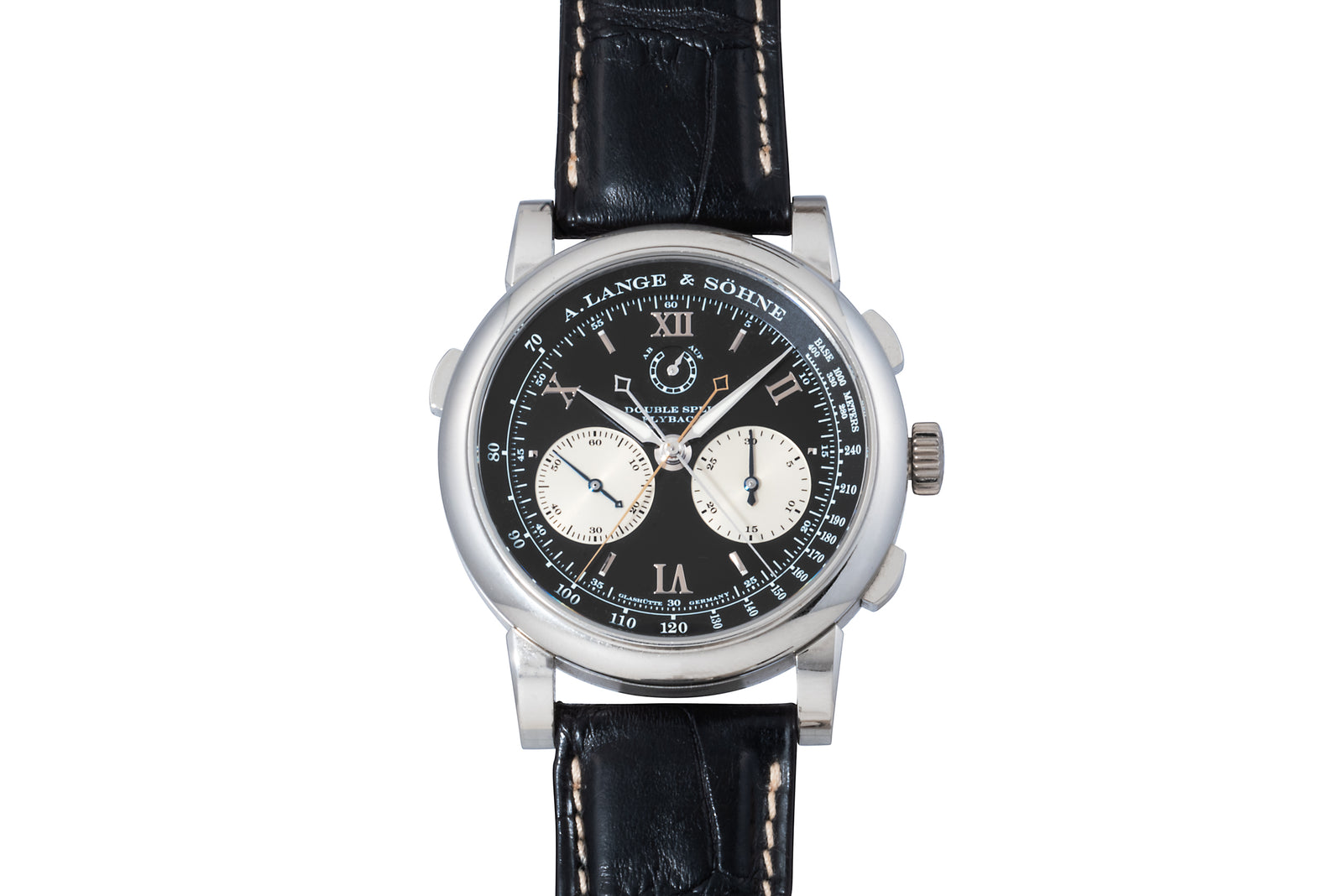TAG Heuer Carrera 'Skeleton'
- Soldspan>
- Sold
Why We Love it
–
Why We Love it
–The Carrera was one of Jack Heuer’s most important passion projects, the design ethos for which can be summed up in one word: legibility.
Jack wanted a watch that was stylish and functional — a watch that gives you everything you need, and nothing you don’t. The original ran from the 1960s to the 1980s, its look shifting slightly as trends changed, ultimately taking on the cushion case design and automatic movements of the late 1960s and 1970s. In the 1980s, after Heuer was bought by Techniques Avant Garde (TAG), the Carrera line was discontinued. However, in the mid-1990s TAG Heuer realized that its classic designs still held value in the commercial market, and decided to re-release two watches: the square-cased Monaco and the Carrera.
This modern take on the Carrera comes in the form of a bold, automatic chronograph. Housed in a 45mm stainless steel case with a sapphire crystal, a signed crown, barrel pushers, and a black ceramic tachymeter bezel, it features an openwork dial with red accents, floating sub register rings and indices, a matching handset with a red chronograph hand, and a date at 3:30.
Powered by TAG Heuer's Calibre Heuer 01 automatic winding movement, this piece comes fitted to a signed, perforated black rubber strap with a signed PVD deployant clasp.
This modern Carrera is the perfect entryway into complicated watchmaking; an excellent first foray into the world of TAG Heuer; or simply a wonderful chronograph for the automotive enthusiast.
Don’t let it get away!
Brand Story
+
Brand Story
+He had already played a role in the design of some timepieces, starting with the Solunar in the late 1940s. But in 1962, the responsibility of running the company fell on his shoulders, and he found himself faced with the daunting task of safeguarding his ancestor’s legacy while at the same time forging his own. His chosen path? Moving into a line of technical instruments for use in sporting and transportation applications.
The Heuer name was not unknown in motor racing and aviation circles. Starting in 1911, when the sport of automobile racing was still in its infancy, the company produced dashboard clocks for cars, boats, and even airplanes. Jack Heuer, a longtime racing aficionado, saw an opportunity to revitalize — or at the very least, to reexamine — the company’s already-successful line of chronographs.
He had first tried his hand with the Autavia, which at the time of his succession was a stopwatch with a virtually illegible dial. In its place he launched the line of Autavia wrist chronographs, the first line of chronographs produced by Heuer to be named, rather than simply numbered. The Autavia was purpose-built for racers and pilots, and attracted the attention of Formula 1 racers and devotees such as Jochen Rindt and Steve McQueen.
In designing the Carrera in 1963, Jack Heuer created something that was entirely his, and is without question the chronograph that is most associated with the brand today. Heuer's obsession with legibility led to a dial design that was simpler to read than the Omega Speedmaster or the Rolex Daytona (released the same year as the Carrera). What resulted was a chronograph with plain baton markers that gave only the most necessary bits of information — clean, uncluttered, undeniably attractive.
The brand grew to become a powerhouse in chronographs in particular, and the list of famous designs from the 1960s and 1970s can’t be counted on two hands. However, one innovation from 1969 deserves particular mention: the famed Caliber 11. This caliber (and its successors) was the result of a multinational race to build the world’s first automatic chronograph movement. It would go on to power the famed Monaco — made famous by actor Steve McQueen — as well as automatic versions of the Autavia, Carrera and more.
Falling on hard times in the wake of the Quartz Crisis, Heuer was ultimately purchased by Technique Avant Garde (TAG), and subsequently by Louis Vuitton Moet Hennessey, who brought the brand into the modern age. Early TAG Heuer quartz divers from the 1980s have found newfound appreciation in collector’s circles, while the brand’s modern catalog is a mix of vintage-inspired reissues and unique collections, such as the Connected smartwatch line.
A:S Guarantee
+
A:S Guarantee
+Our Pledge
Analog:Shift stands behind the authenticity of our products in perpetuity.
Condition
Since our pieces are vintage or pre-owned, please expect wear & patina from usage and age. Please read each item description and examine all product images.
Warranty
We back each Analog:Shift vintage timepiece with a two-year mechanical warranty from the date of purchase.
International Buyers
Please contact us prior to purchase for additional details on shipping and payment options.
Shipping & Returns
+
Shipping & Returns
+All of our watches include complementary insured shipping within the 50 states.
Most of our products are on hand and will ship directly from our headquarters in New York City. In some cases, watches will be shipped directly from one of our authorized partners.
We generally ship our products via FedEx, fully insured, within 5 business days of purchase. An adult signature is required for receipt of all packages for insurance purposes. Expedited shipping is available at an additional cost. We are also happy to hand deliver your purchase in Manhattan or you may pick it up at our showroom.
Returns must be sent overnight or by priority international delivery, fully insured and paid for by the customer. A restocking fee may apply. Watches must be returned in the same condition as initially shipped.
We welcome international buyers, please contact us prior to purchase for additional details on shipping and payment options.
Make it yours will fit standard 22mm watches

Muir Green Cervo Strap
- Regular price
- $19.99
- Regular price
- $49
- Sale price
- $19.99
- Unit price
- per

Monroe Blonde Gloss Alligator-Pattern Strap
- Regular price
- $19.99
- Regular price
- $49
- Sale price
- $19.99
- Unit price
- per
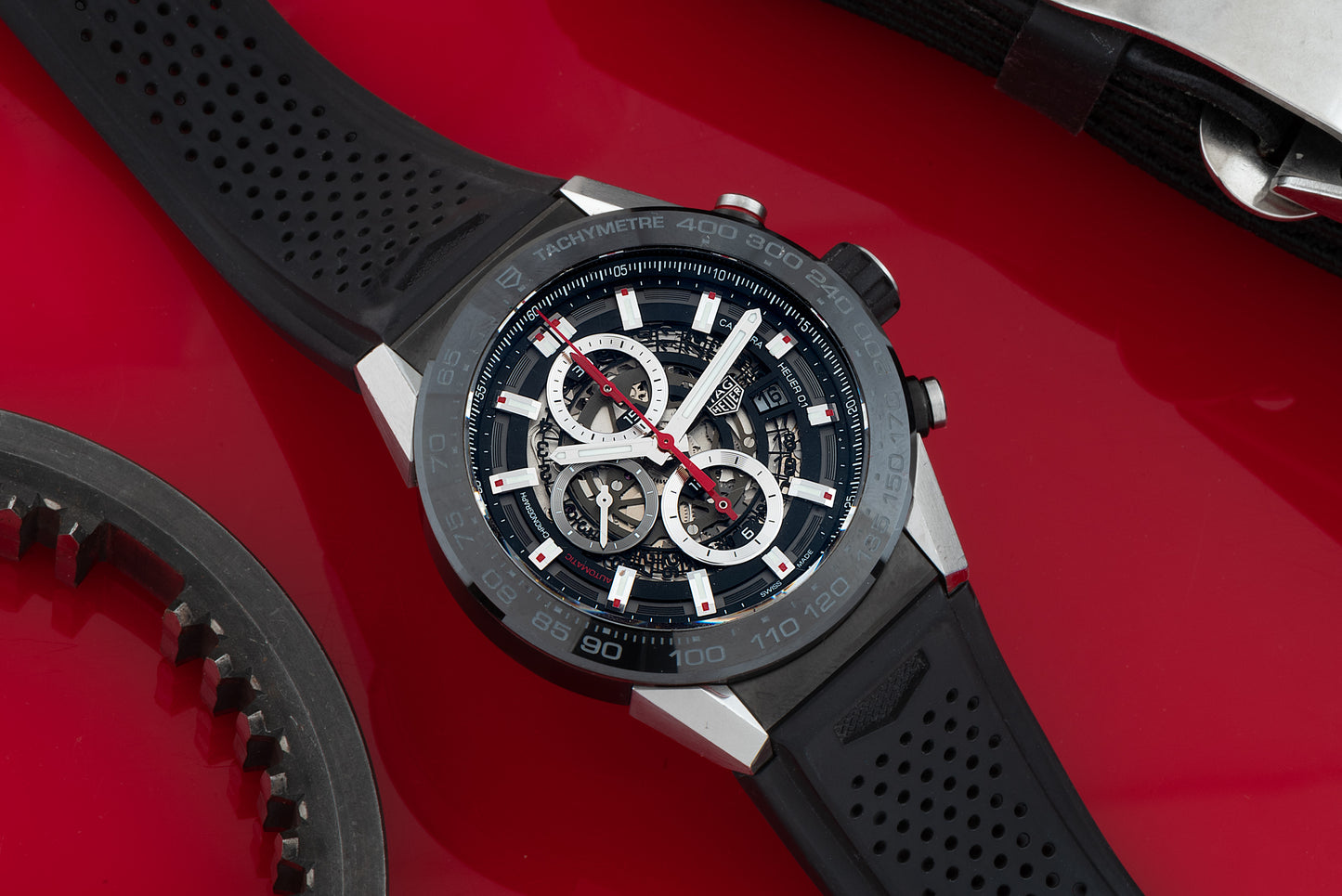
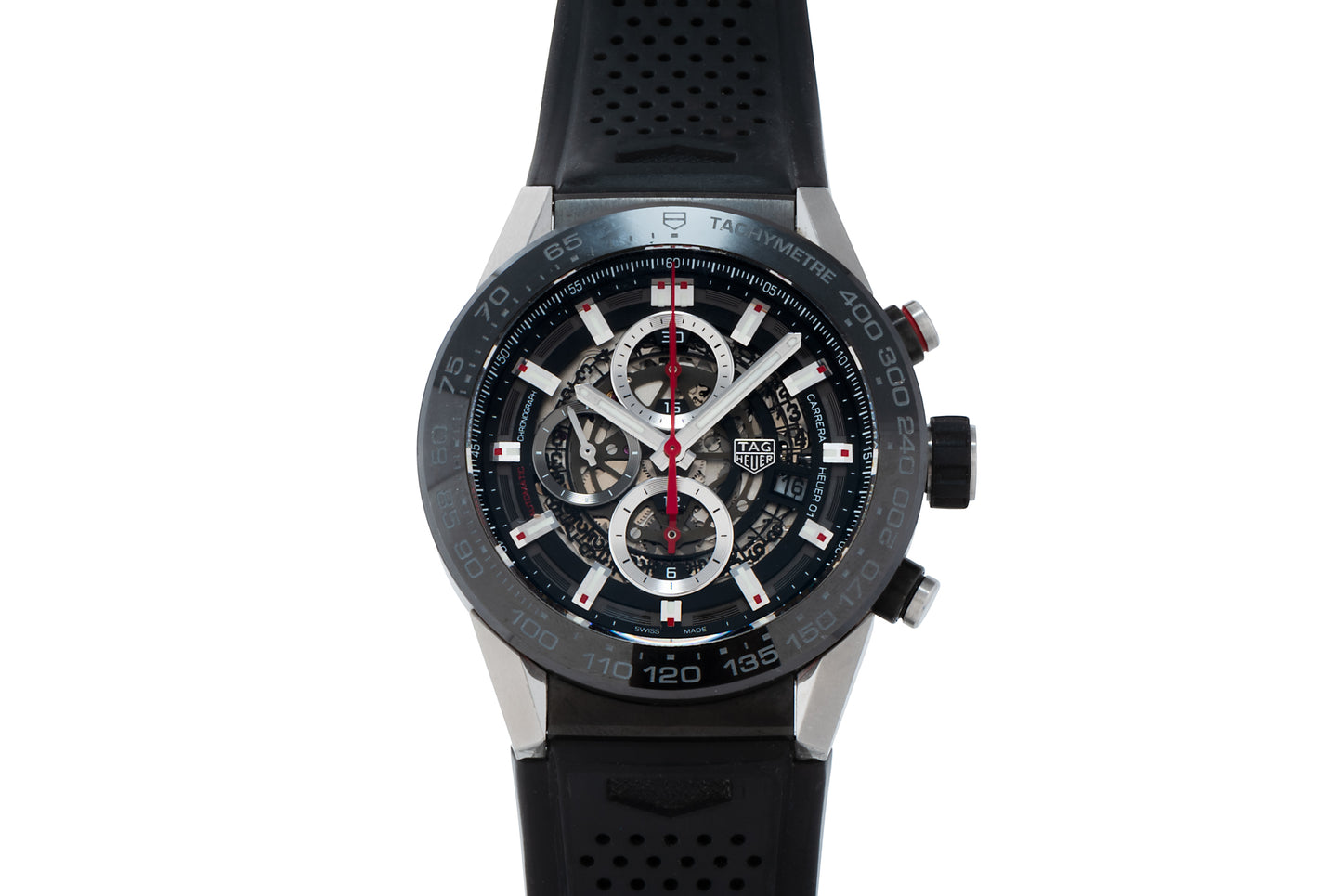
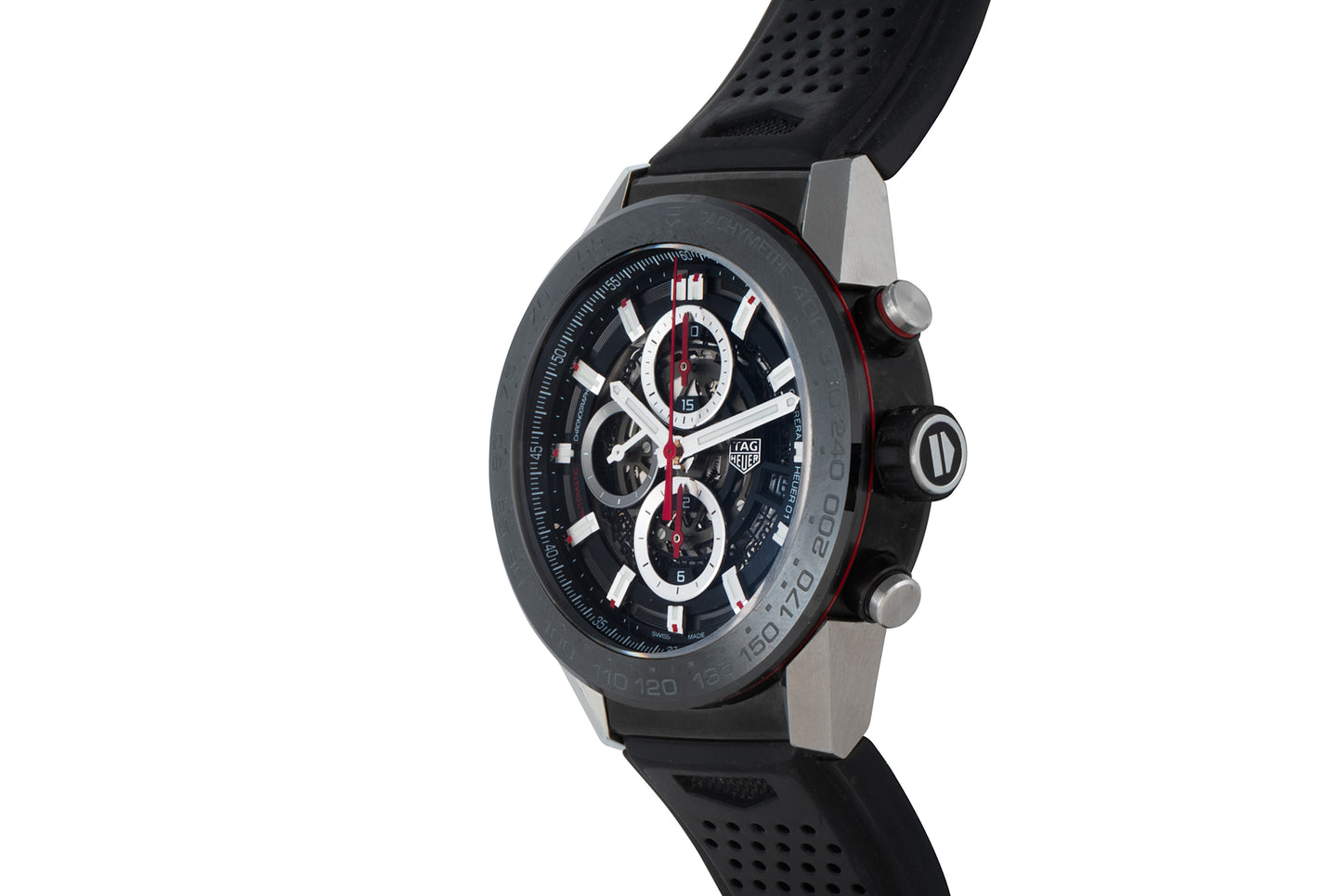
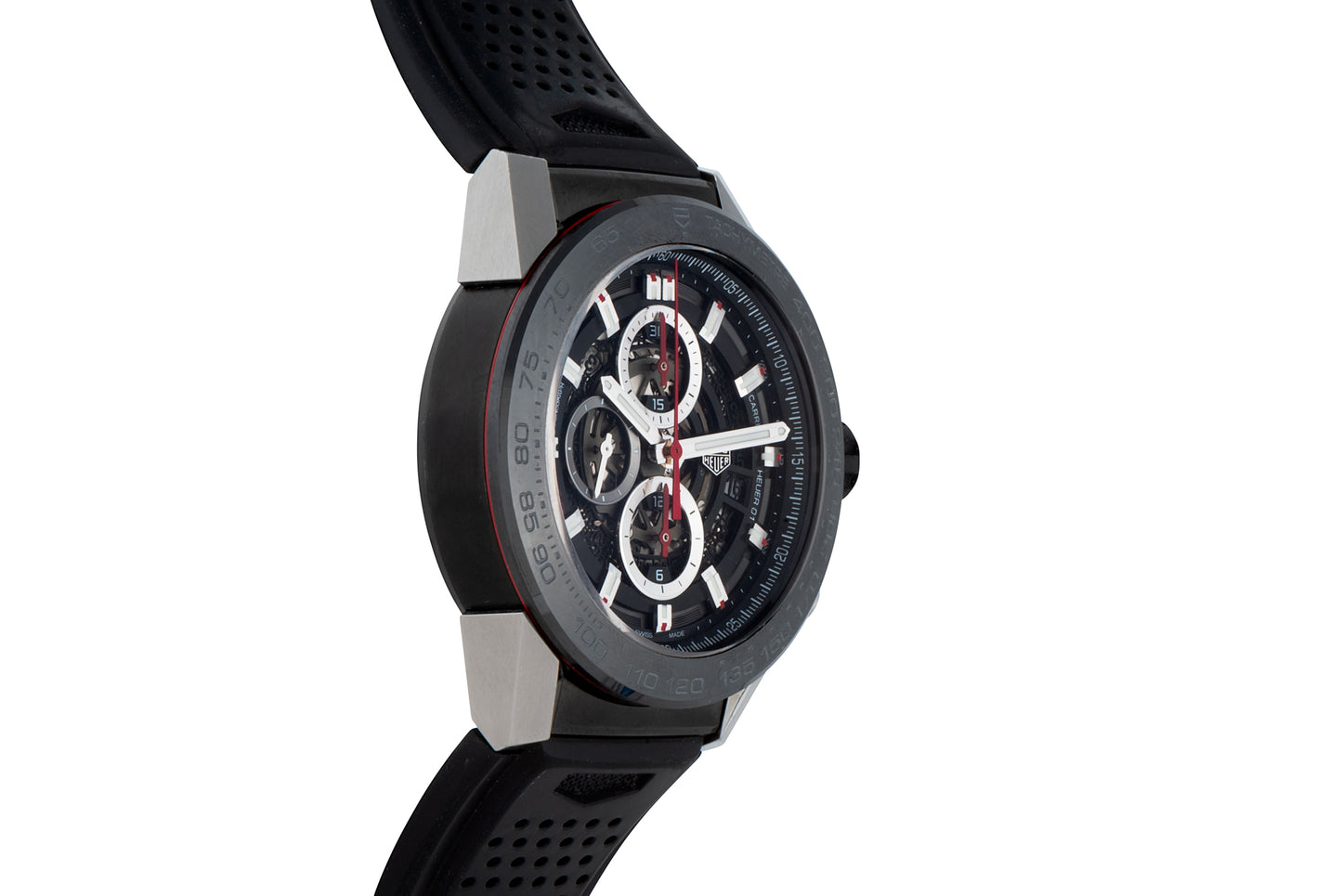
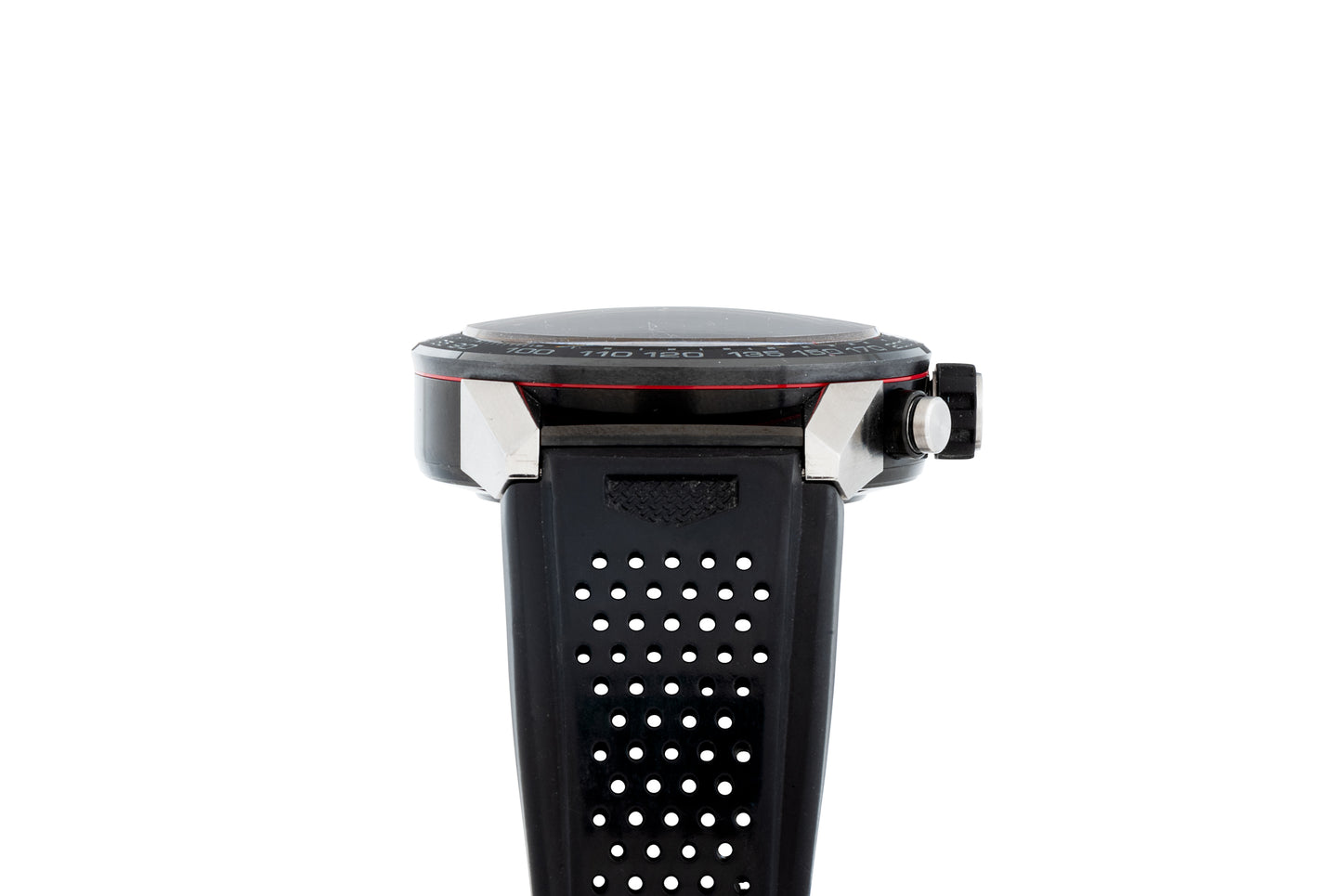
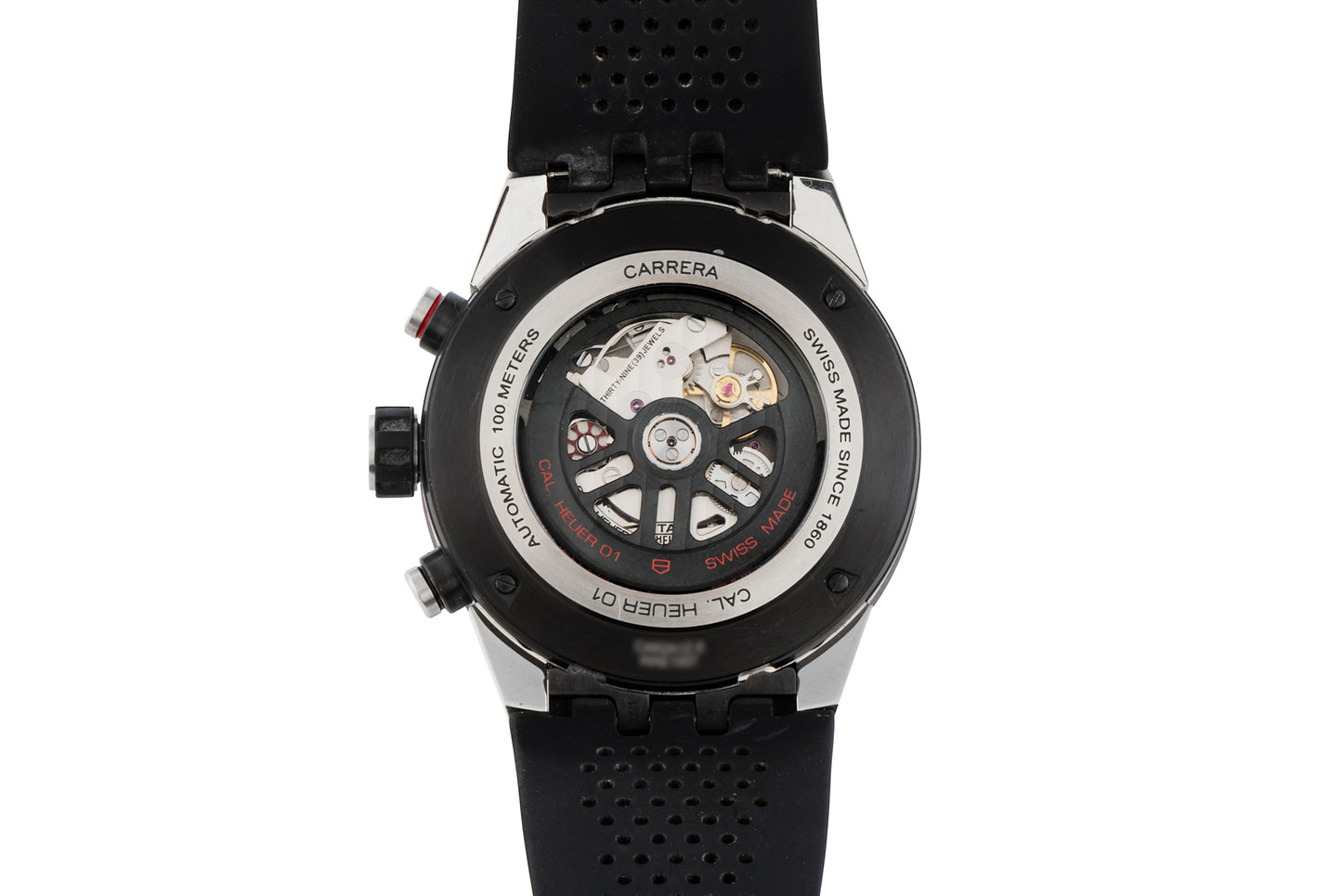
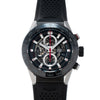
TAG Heuer Carrera 'Skeleton'
- Soldspan>
- Sold
